These are articles and programs from the Songmaker’s Oliver Award that ran for 5 years from 1967 thru 1971. I could not find any newsletters from 1967 in the archives. To save an image to your computer, right click and select Save or Save As.
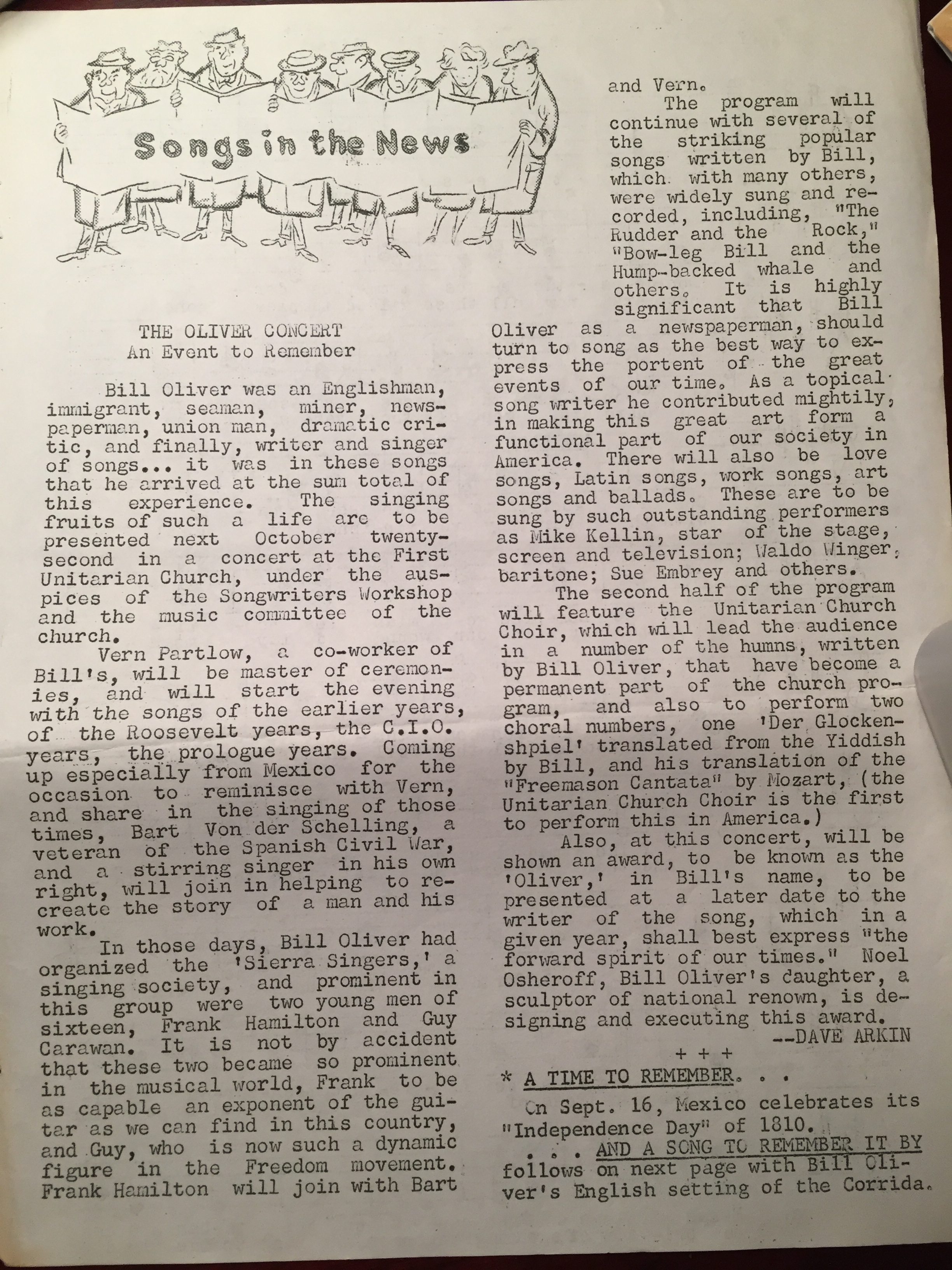
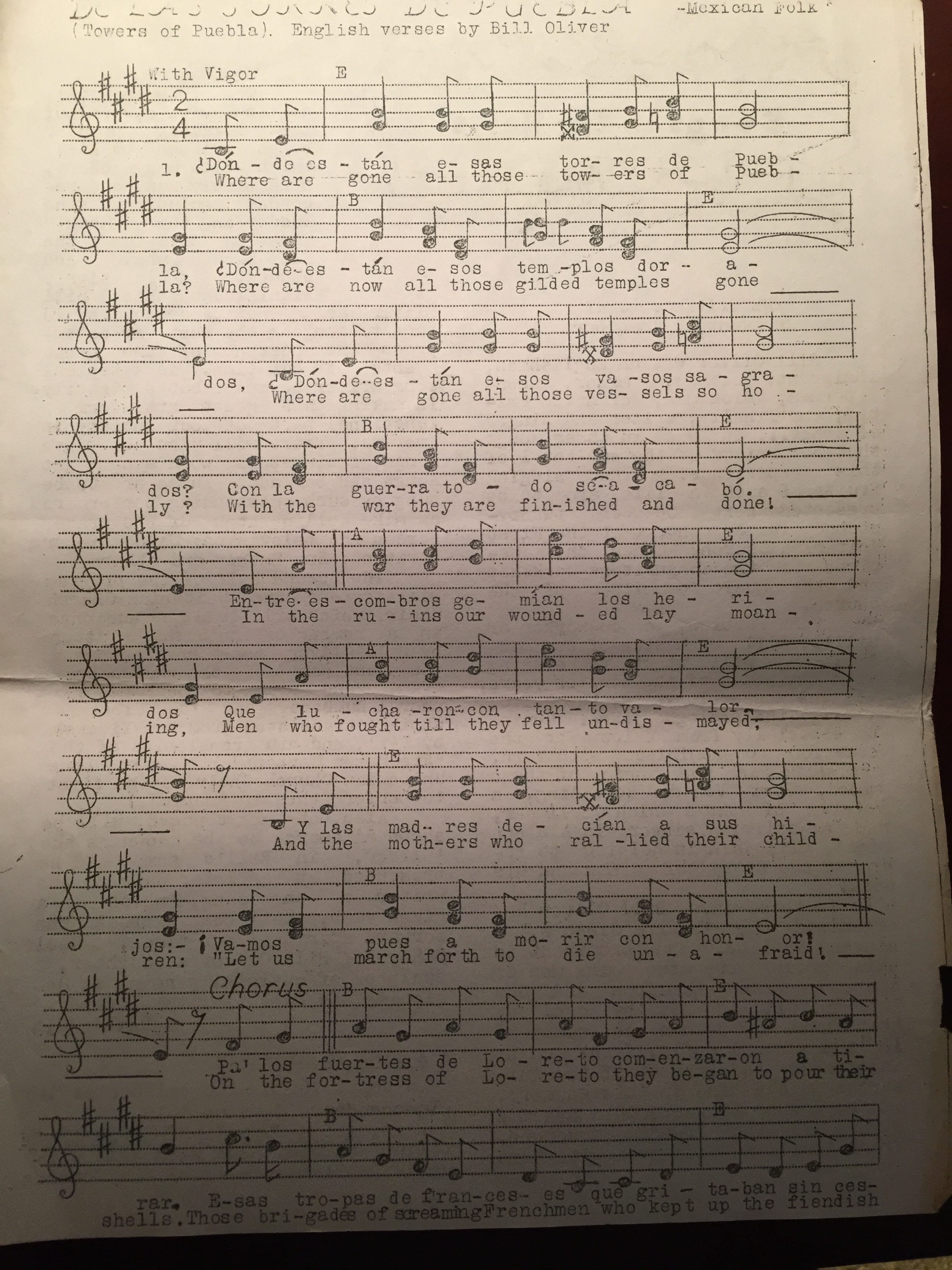
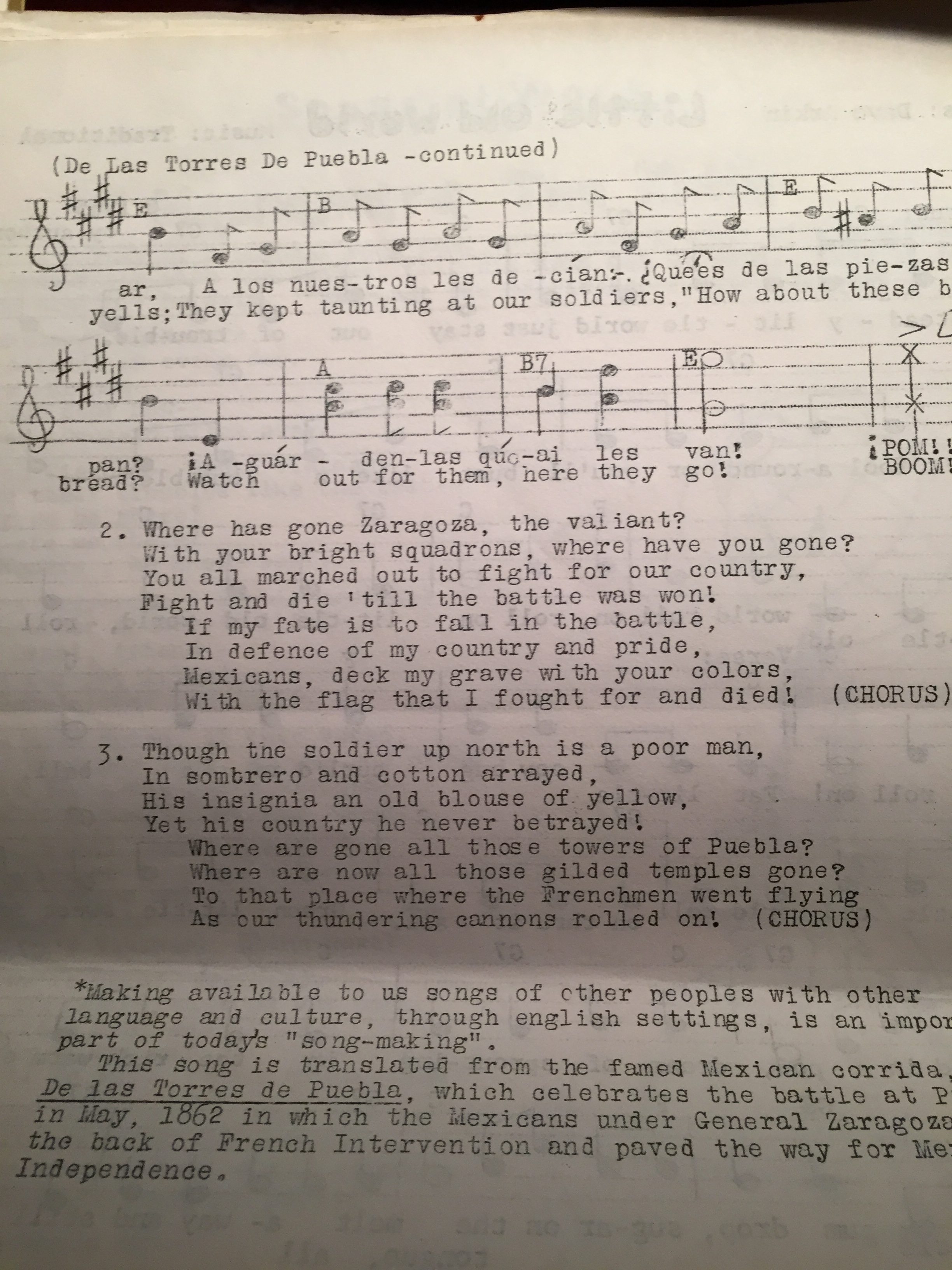
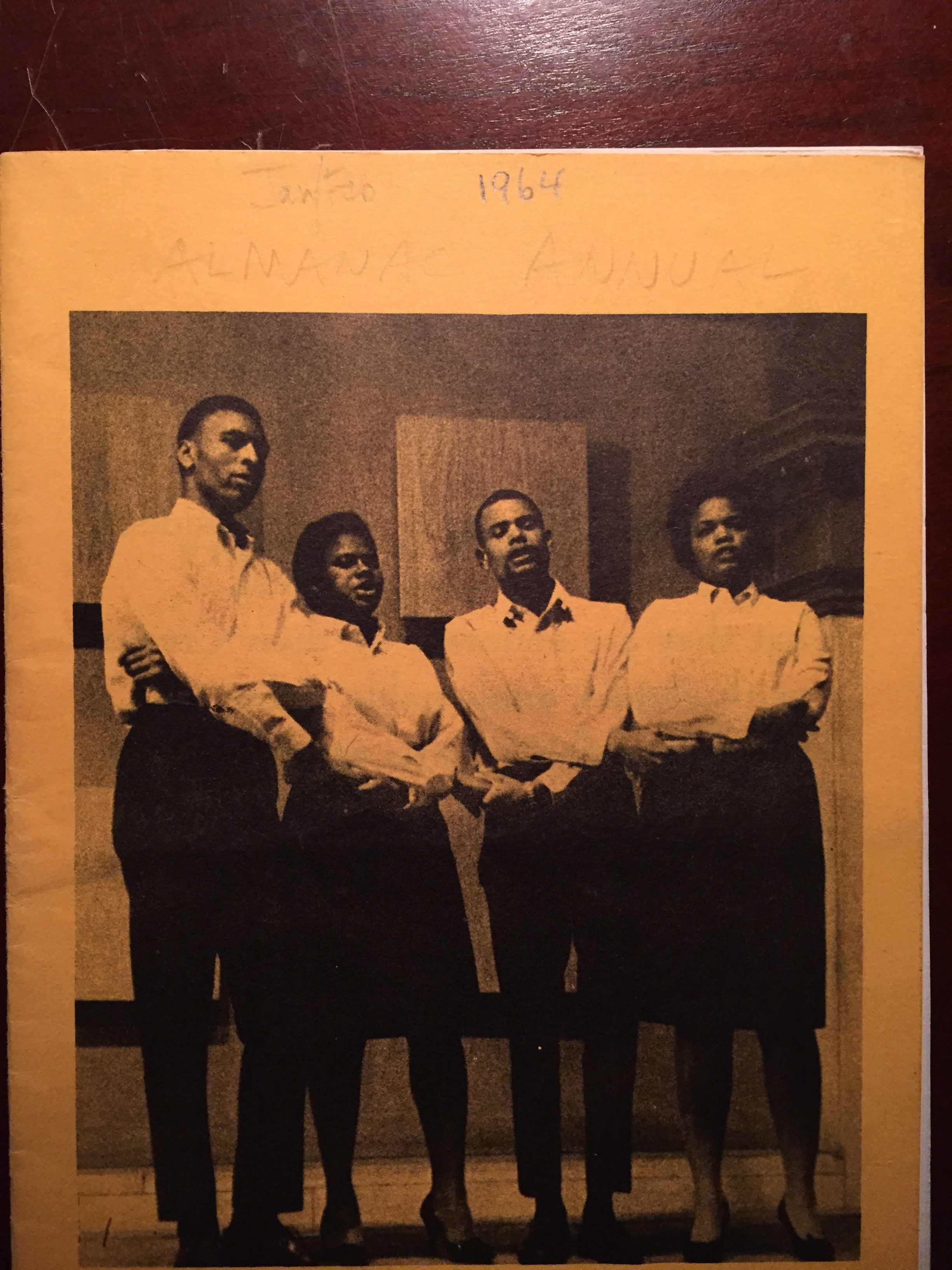
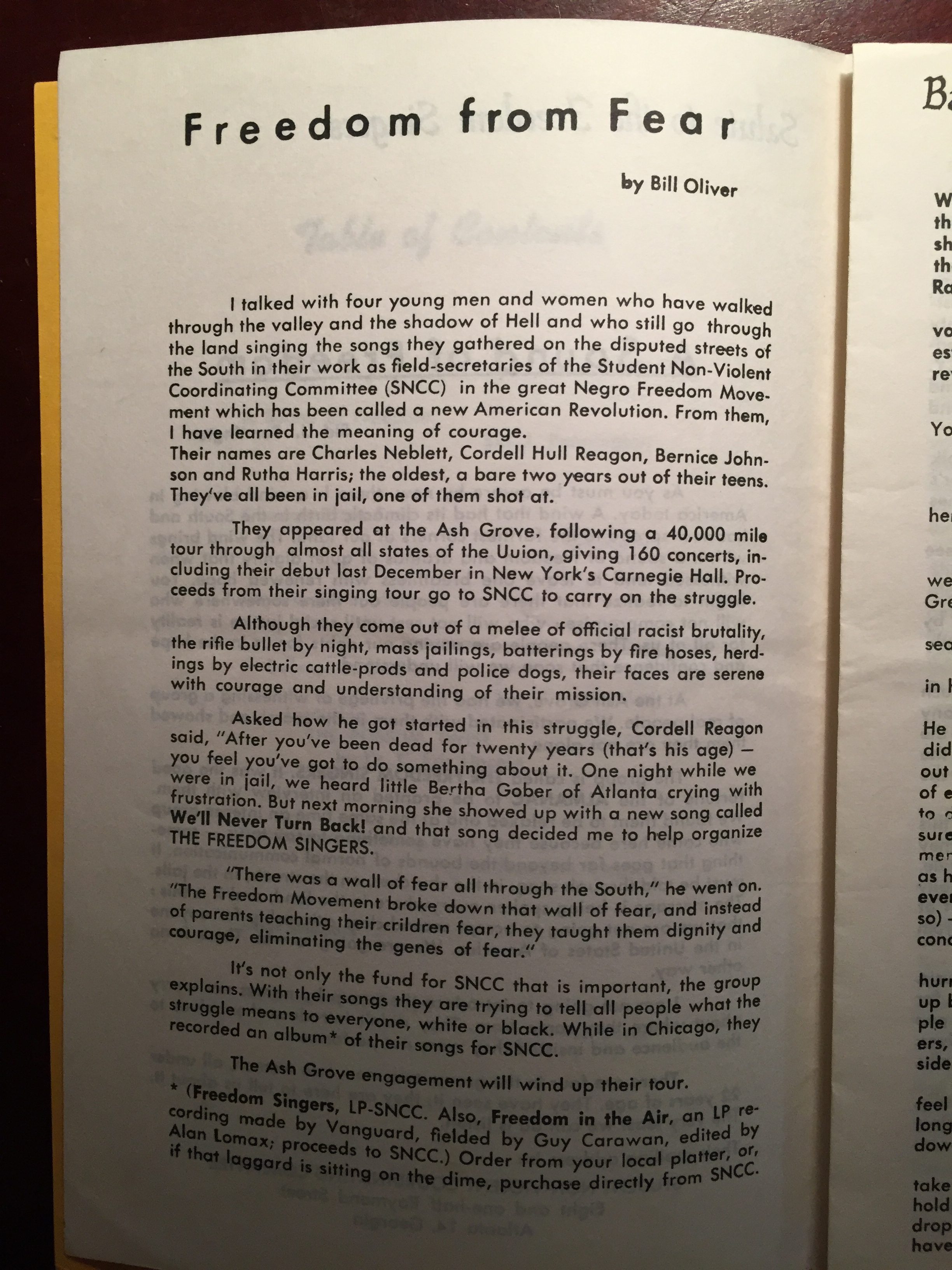
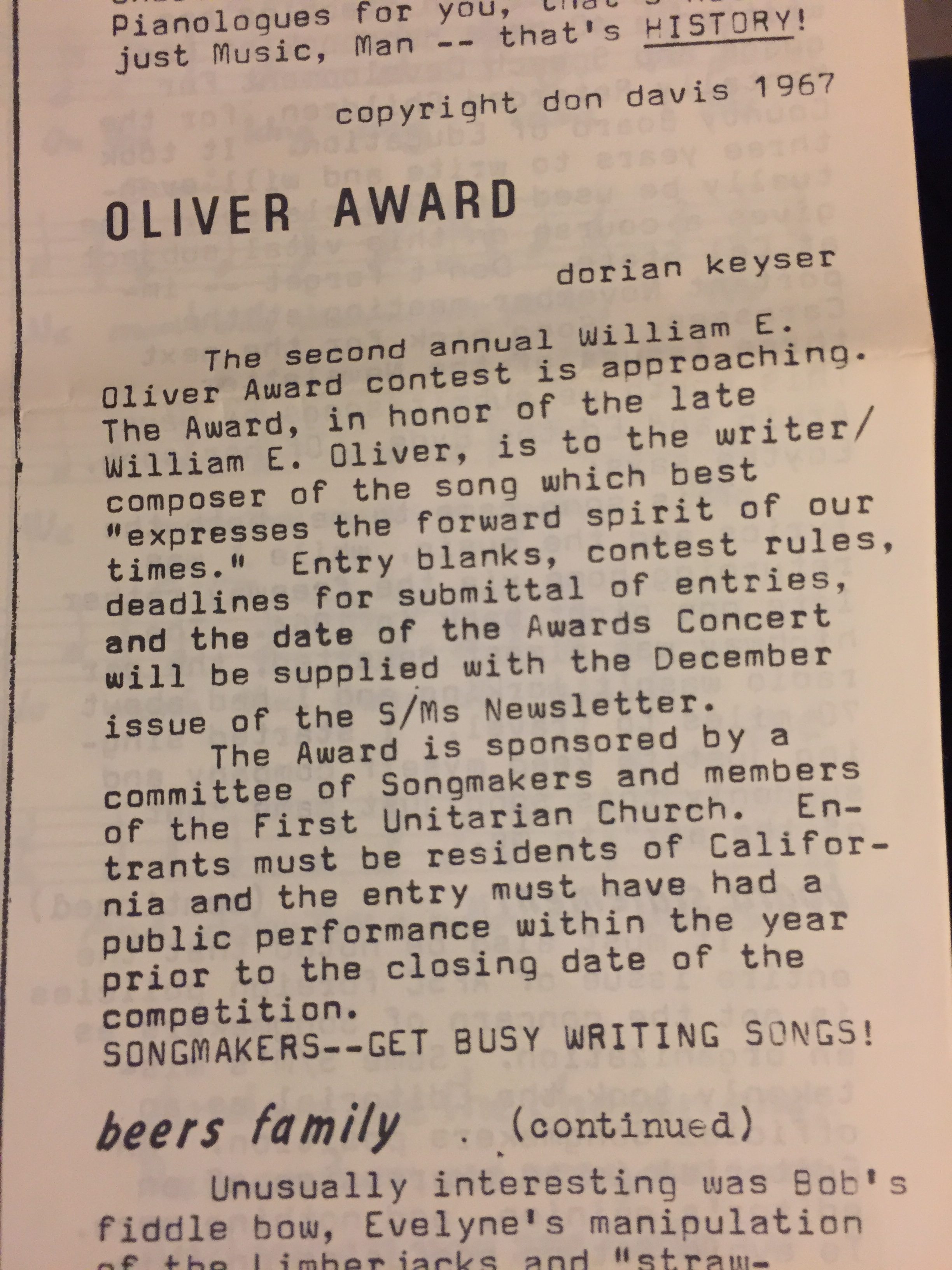
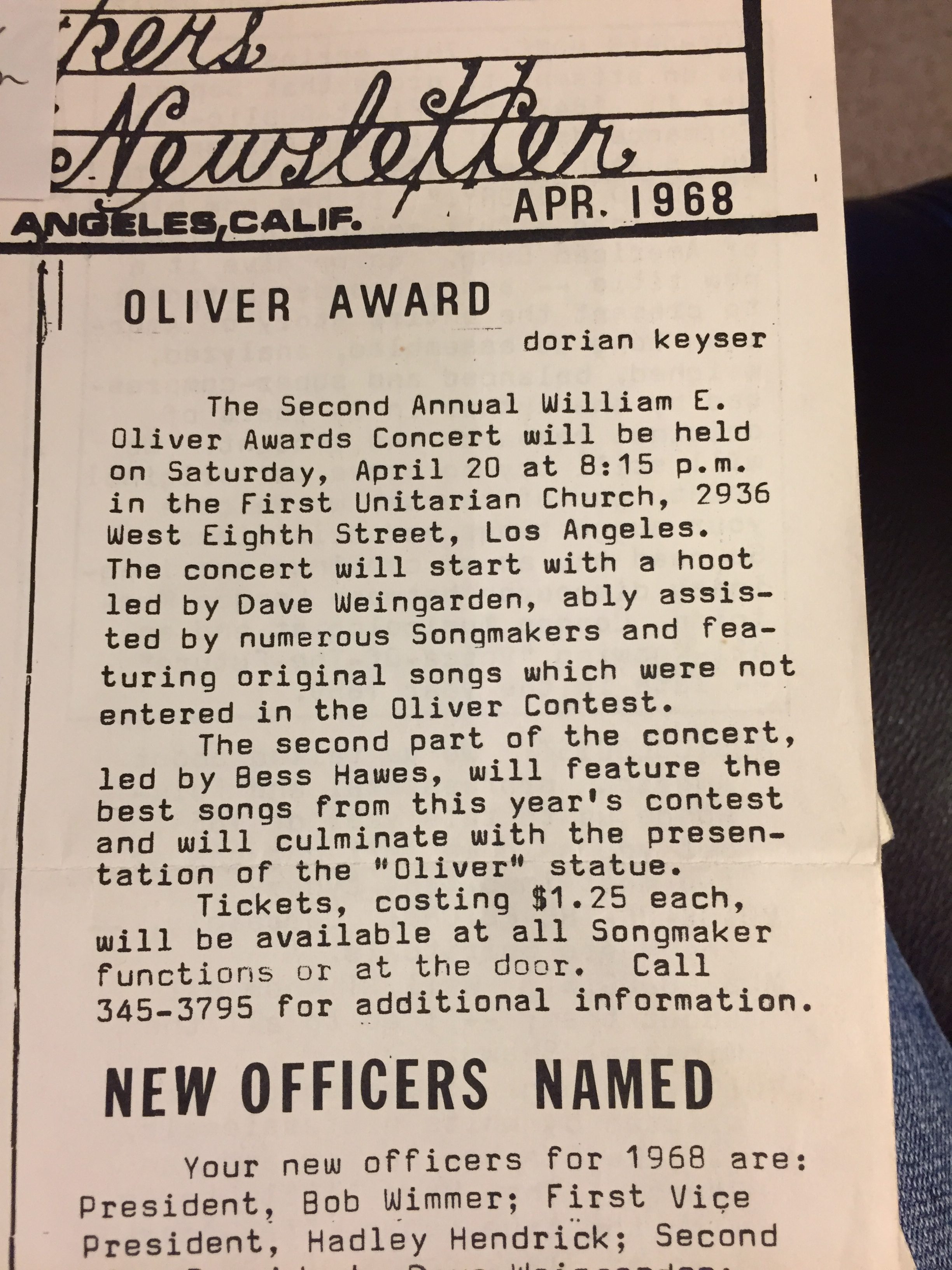
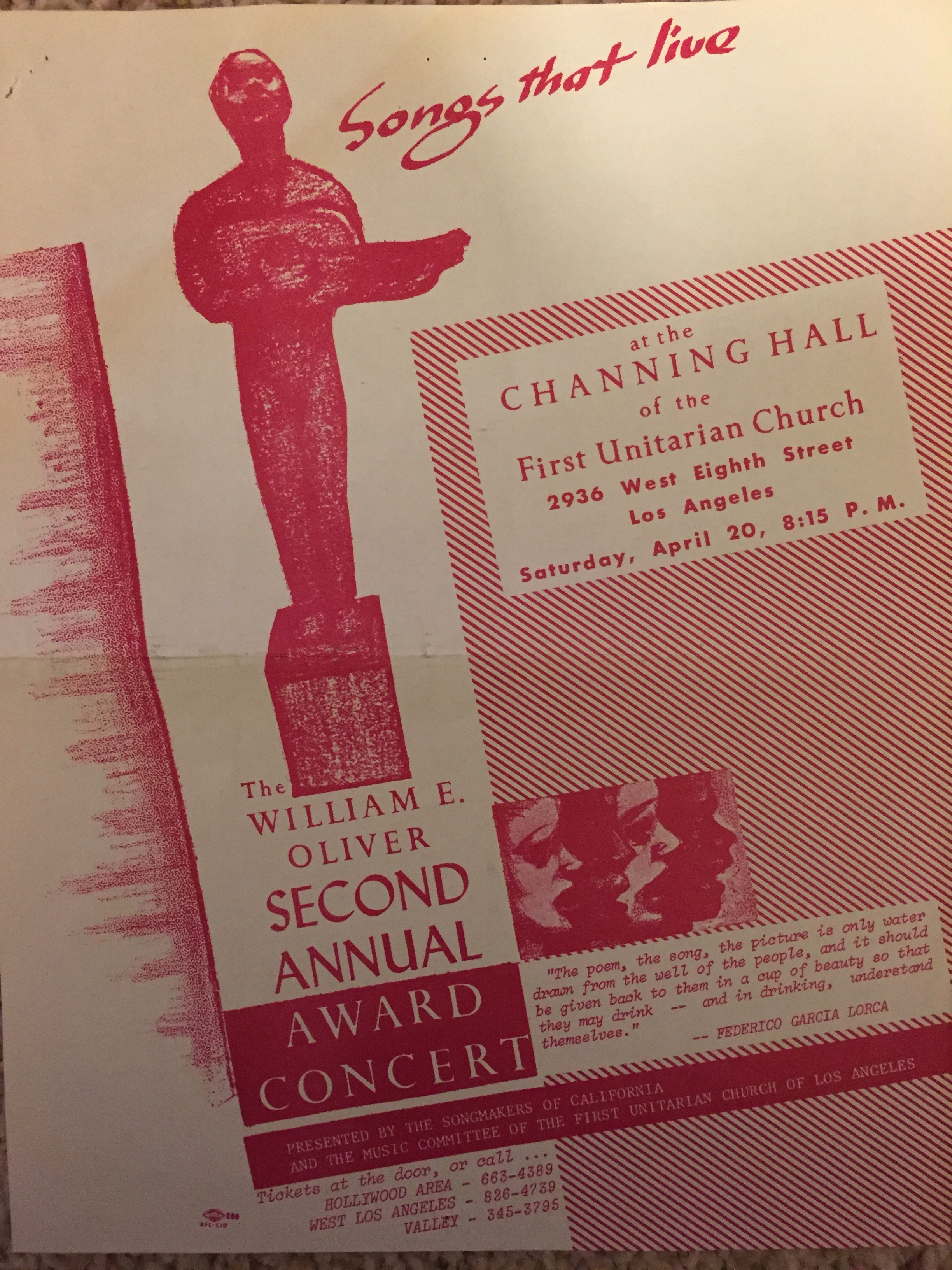
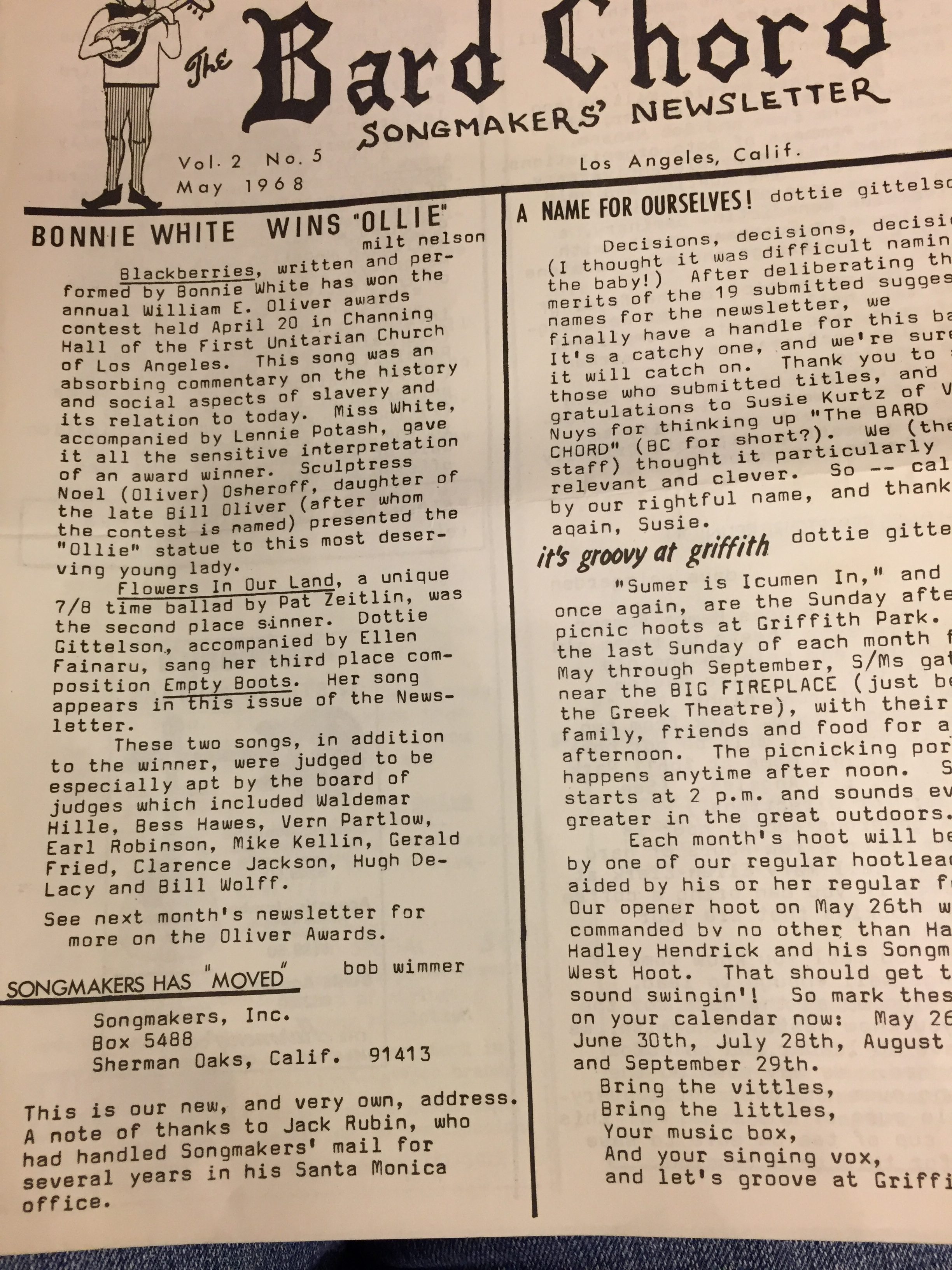
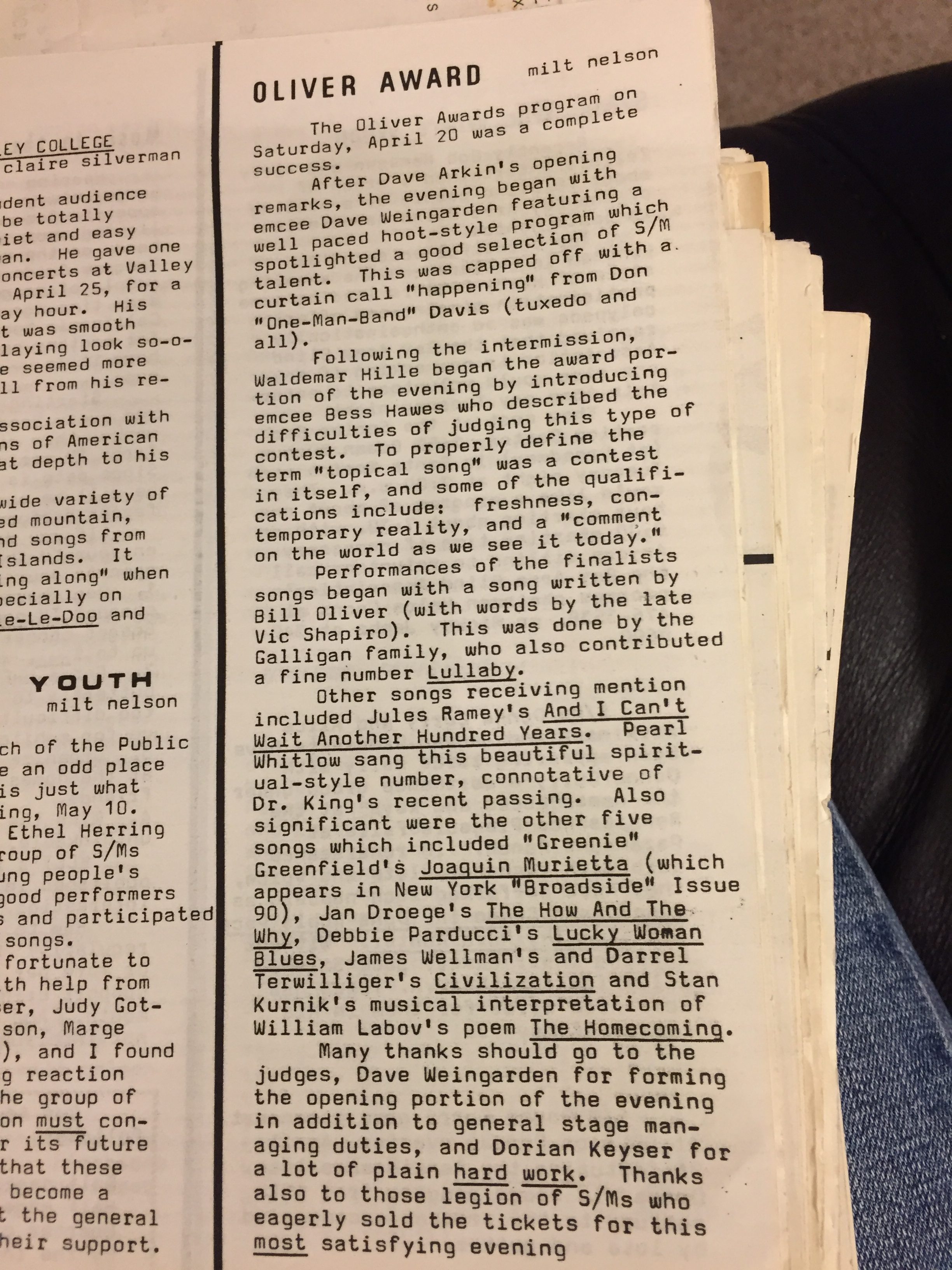
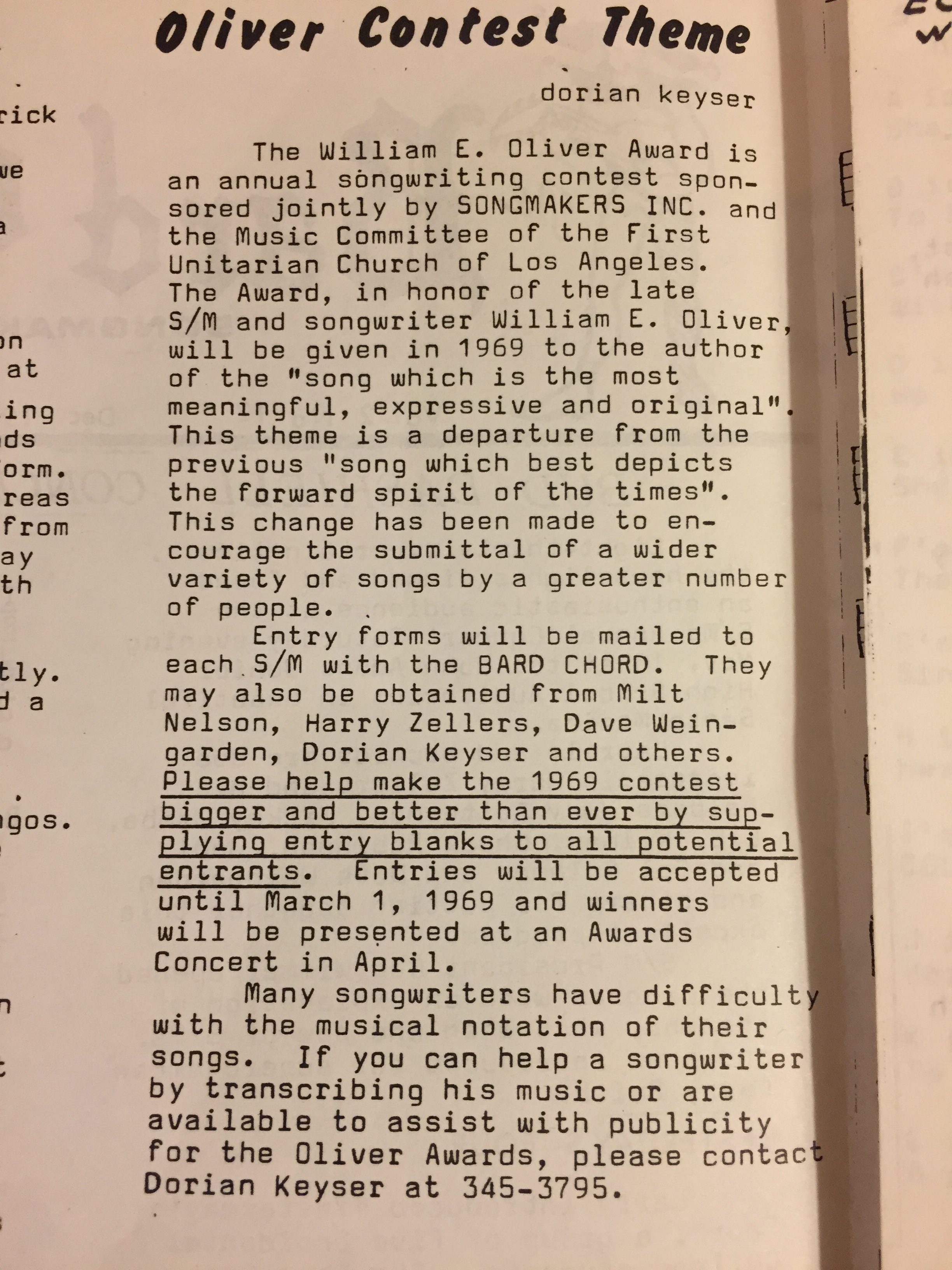
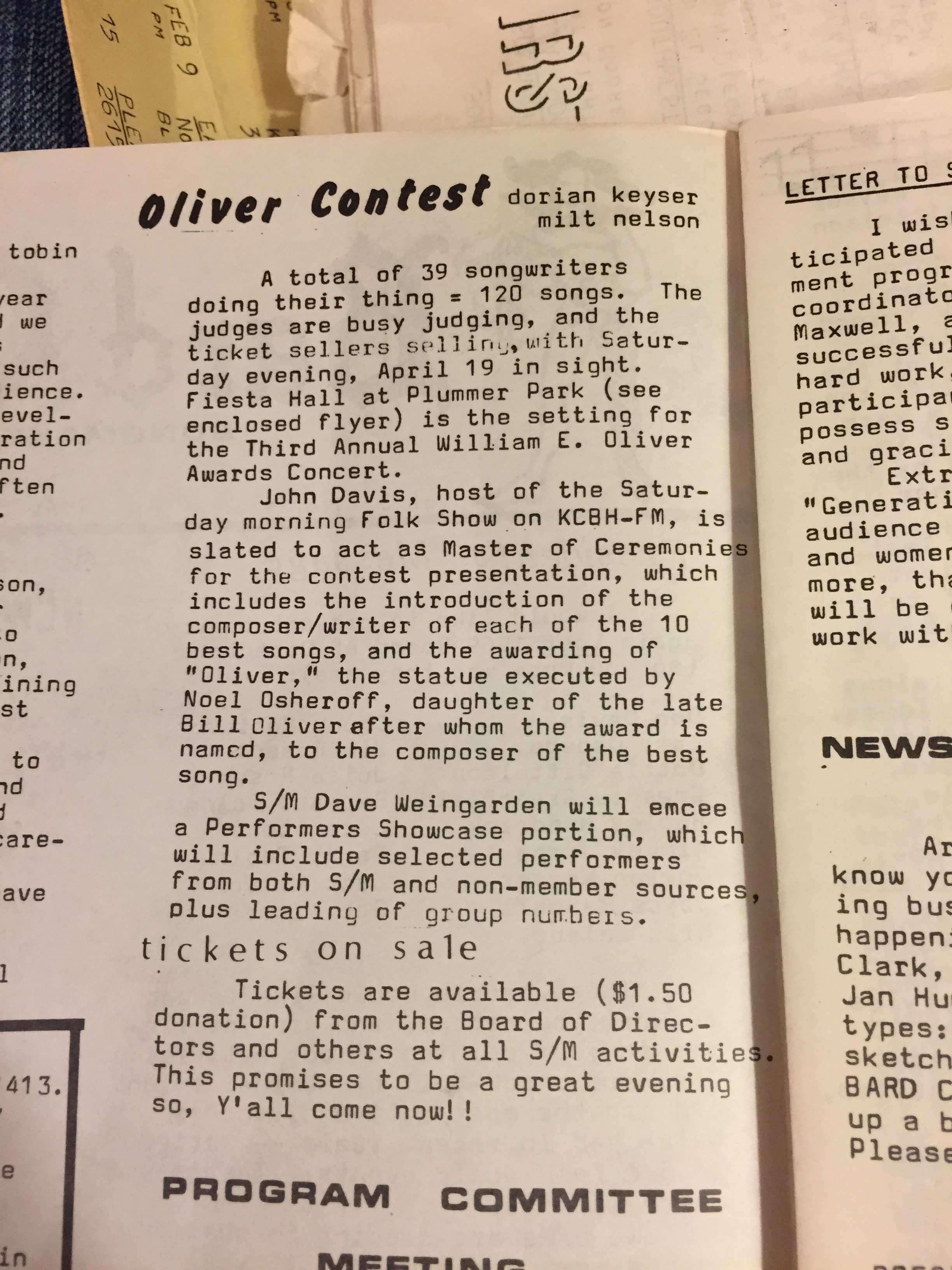
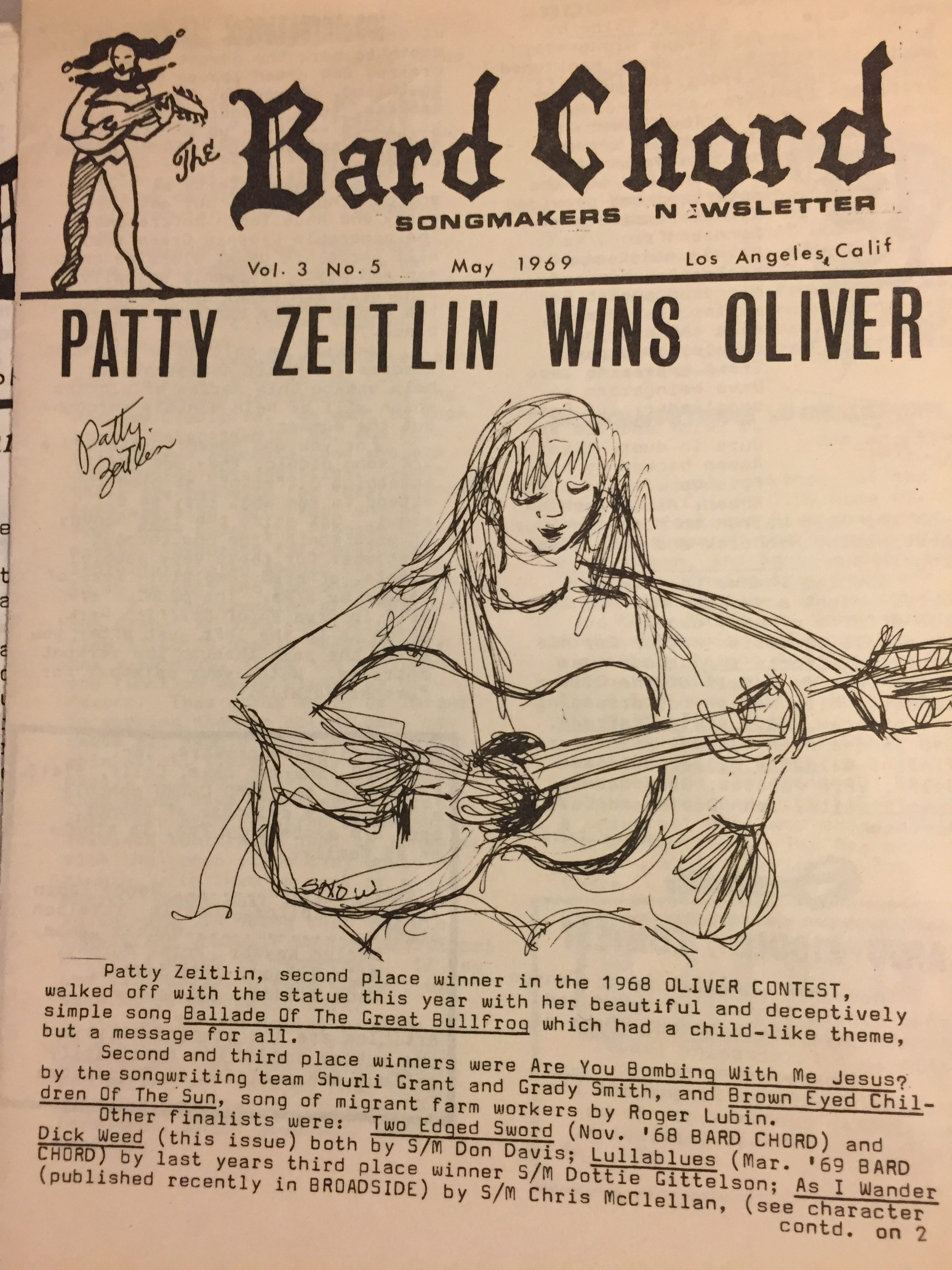
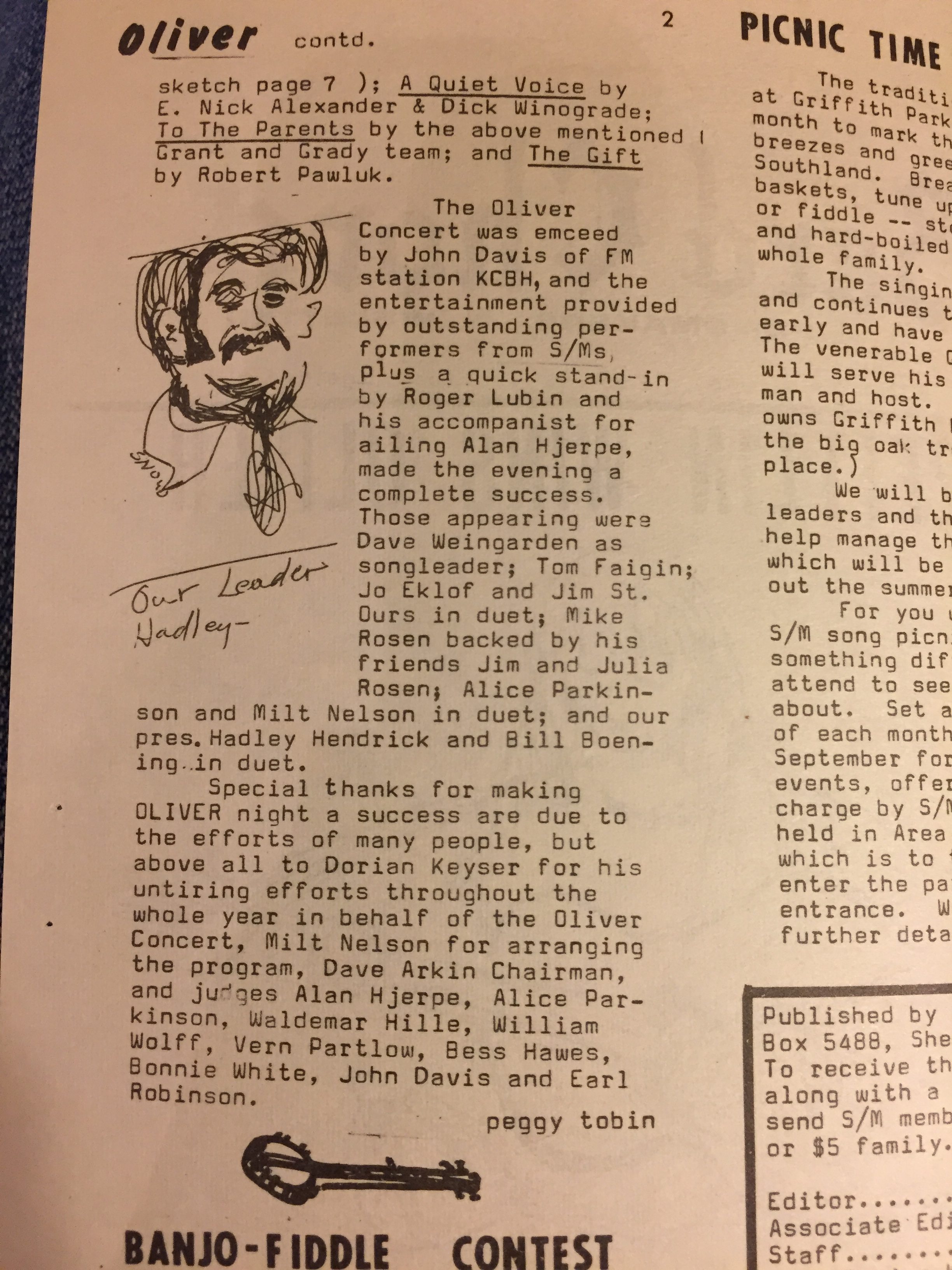
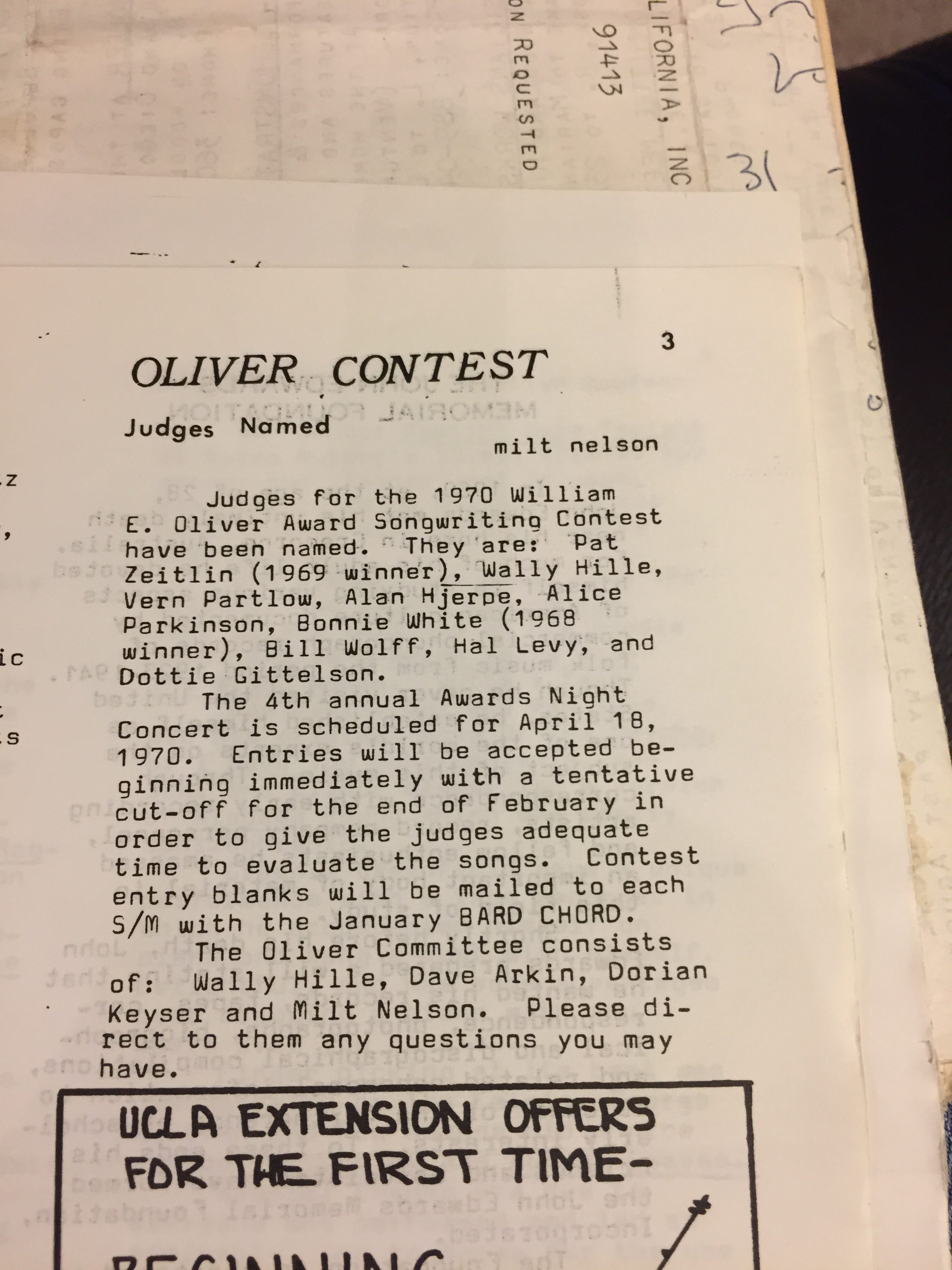
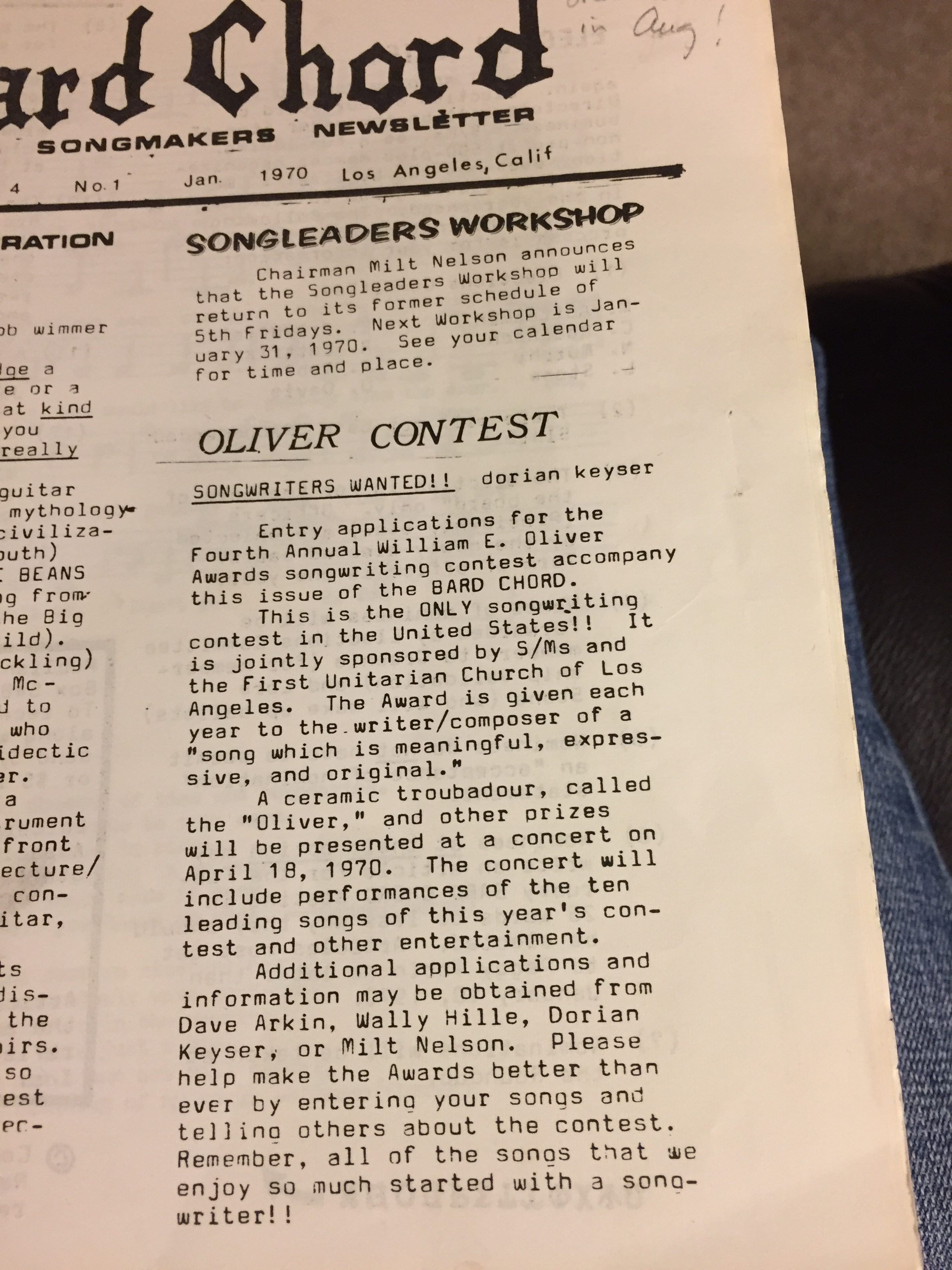
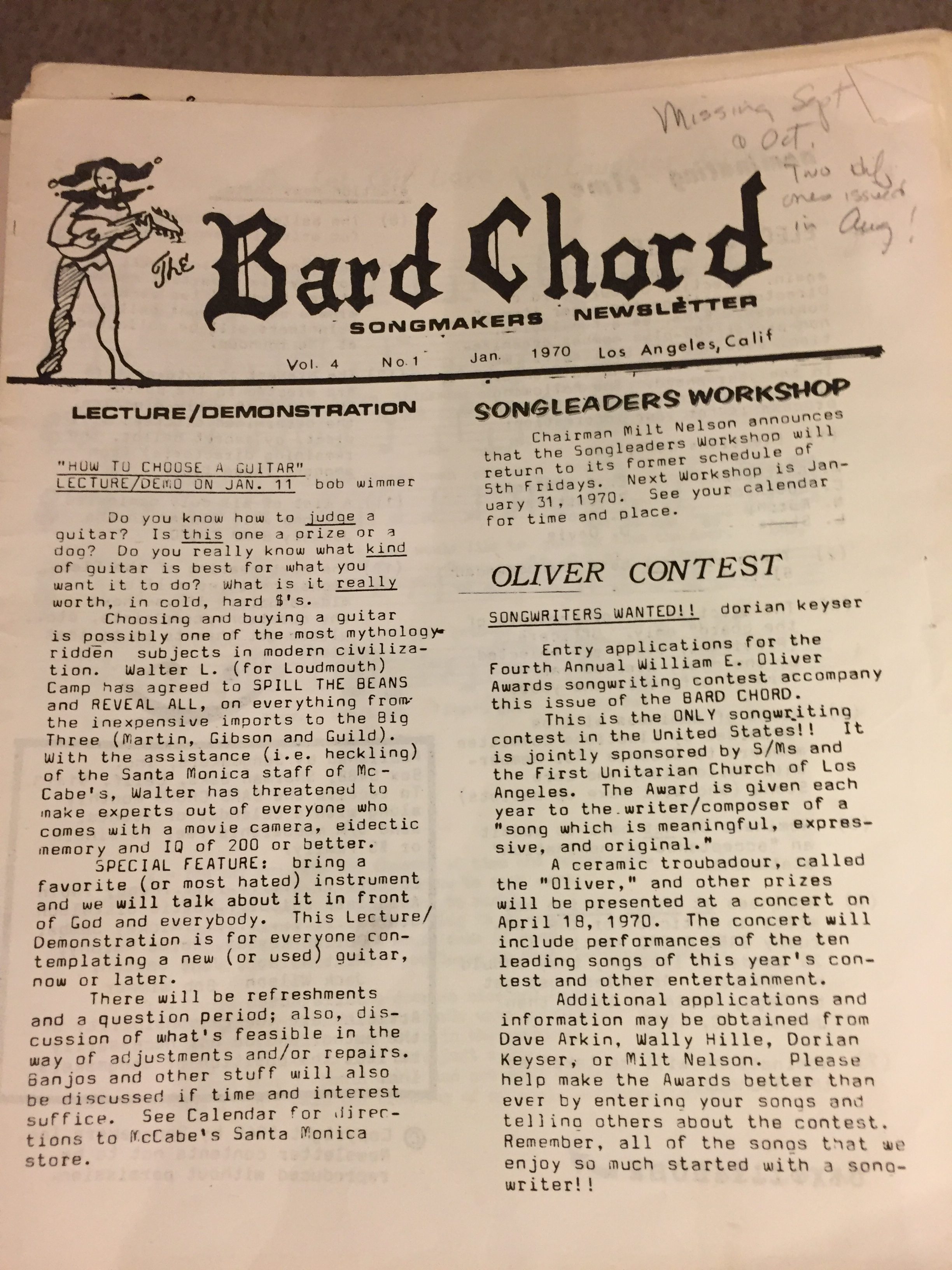
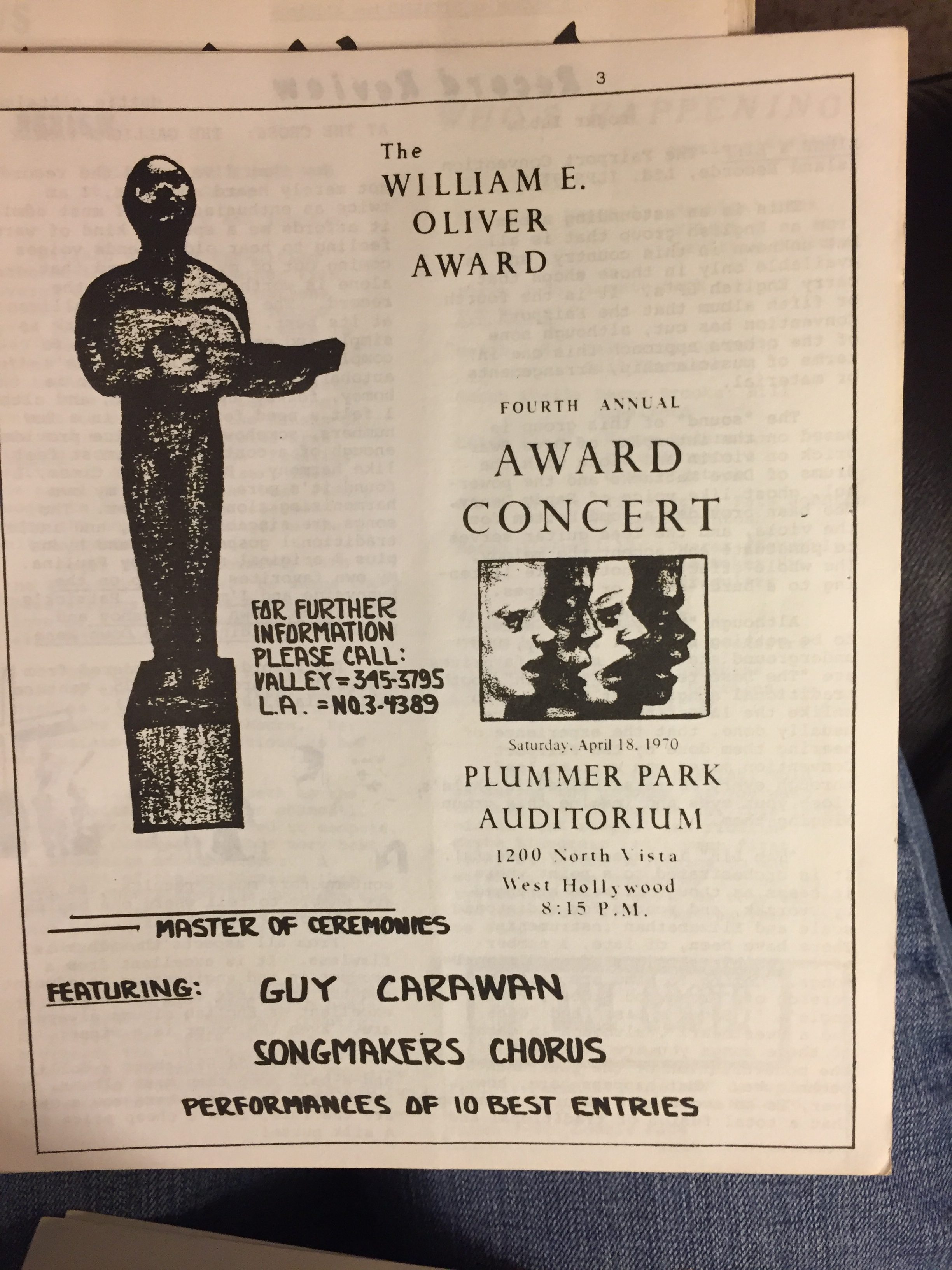
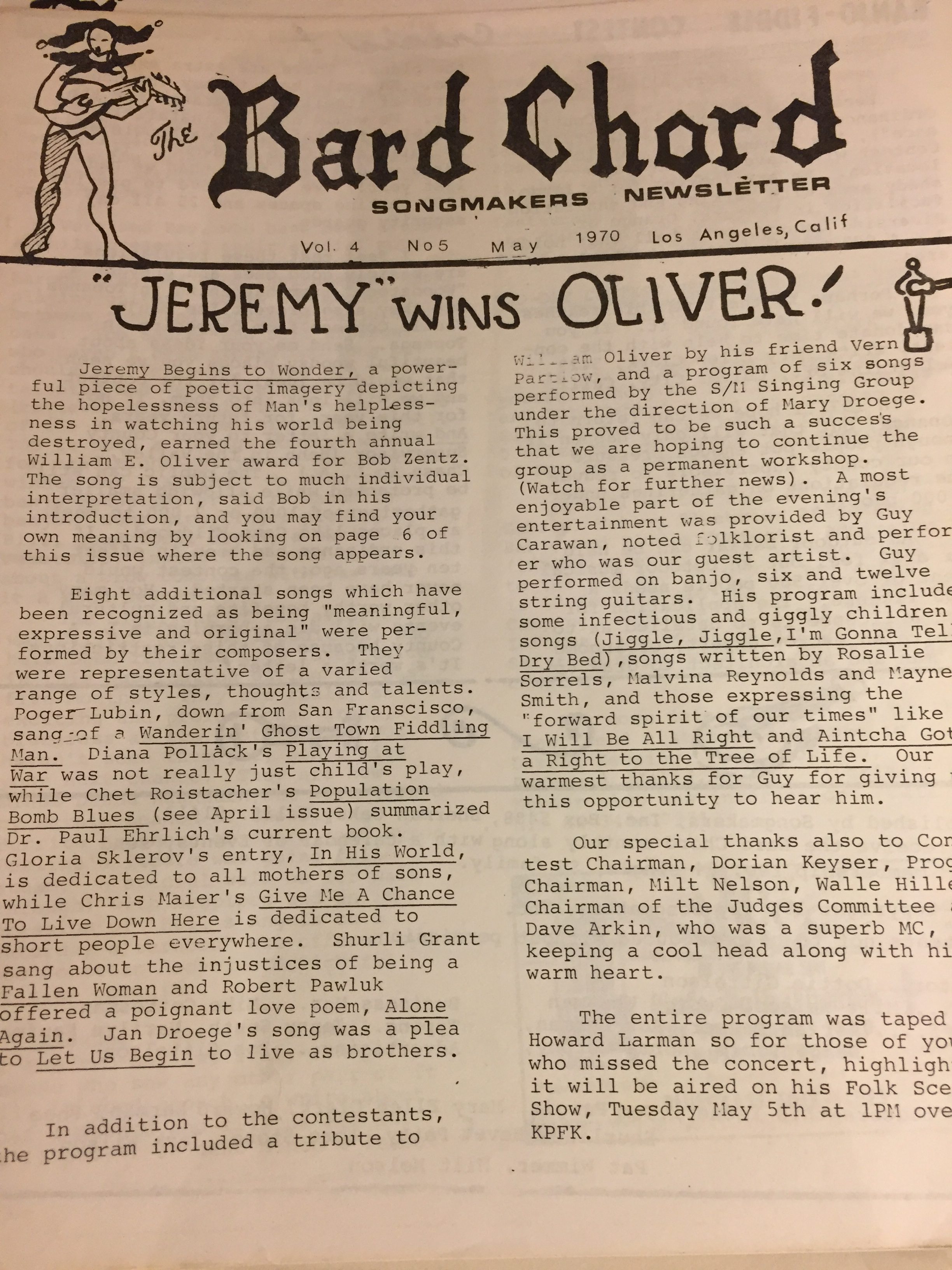
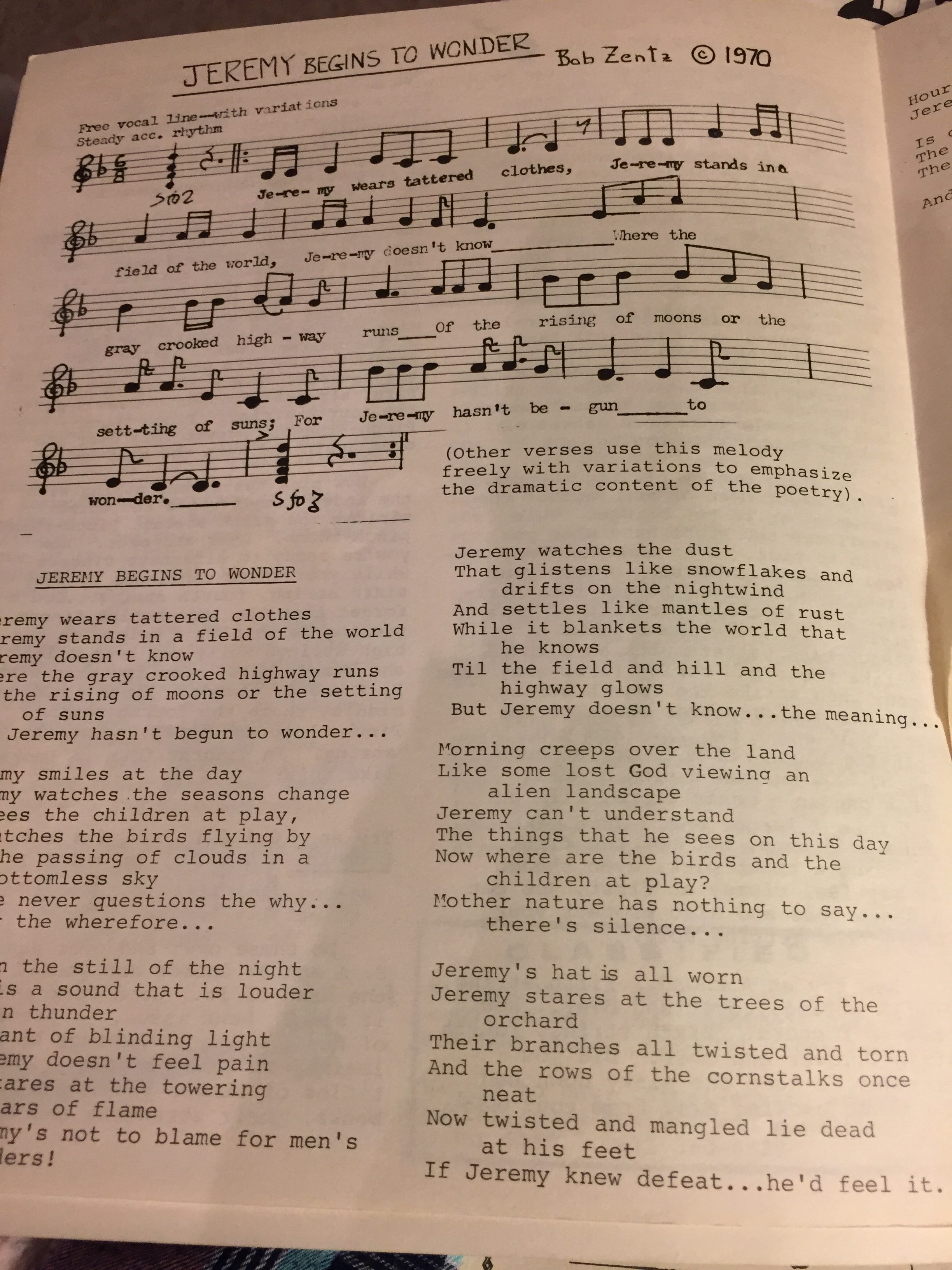
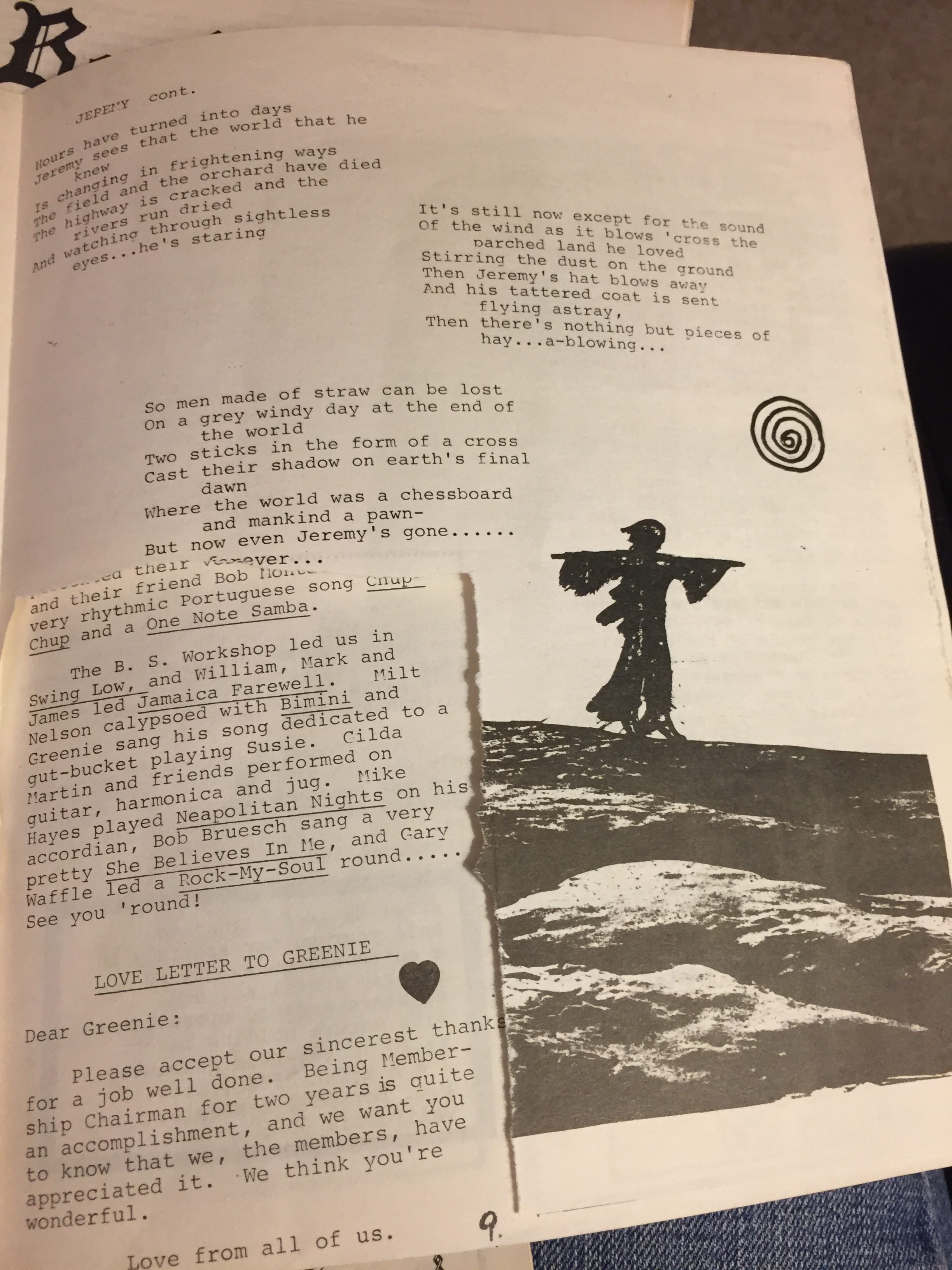
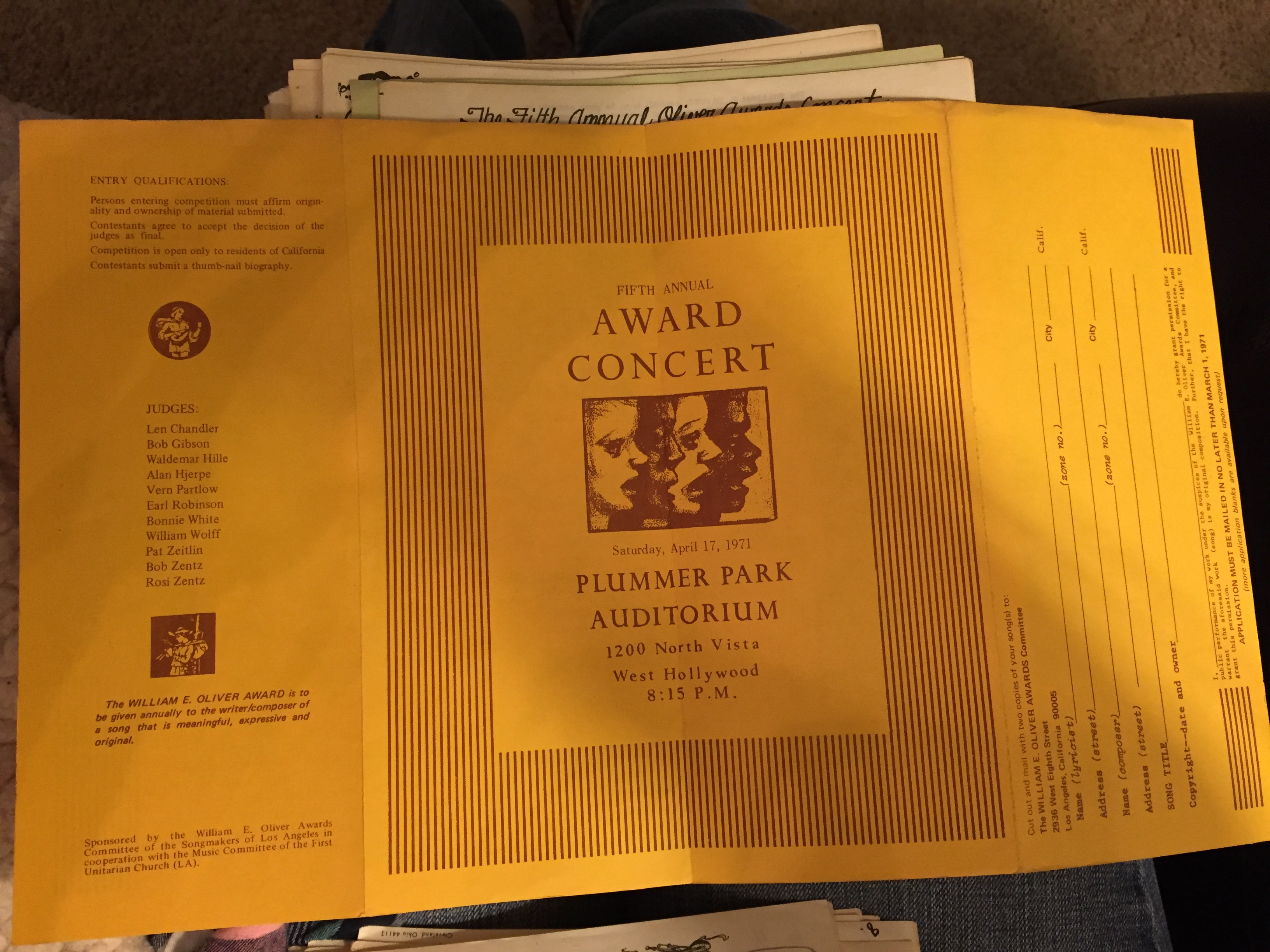
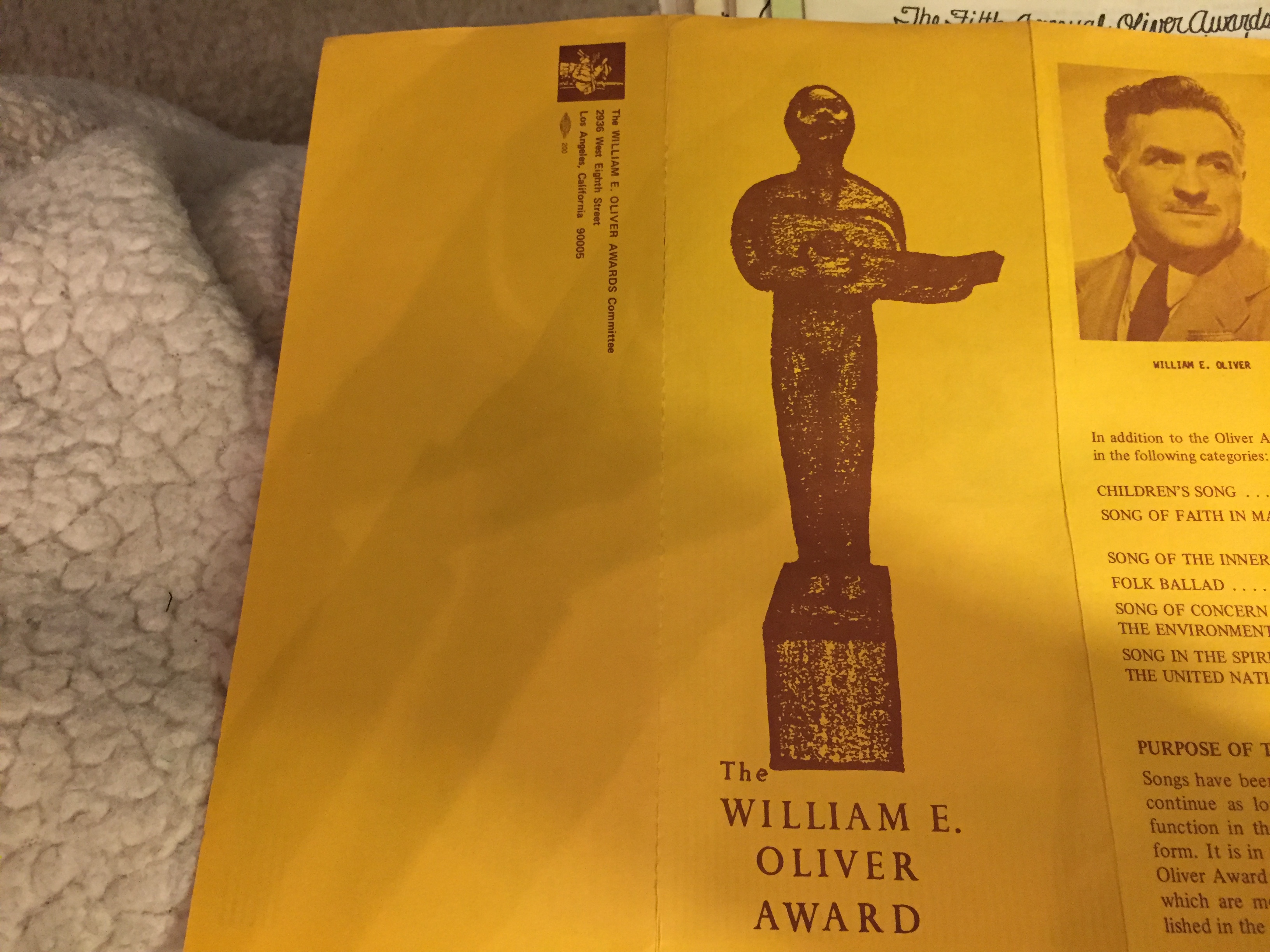
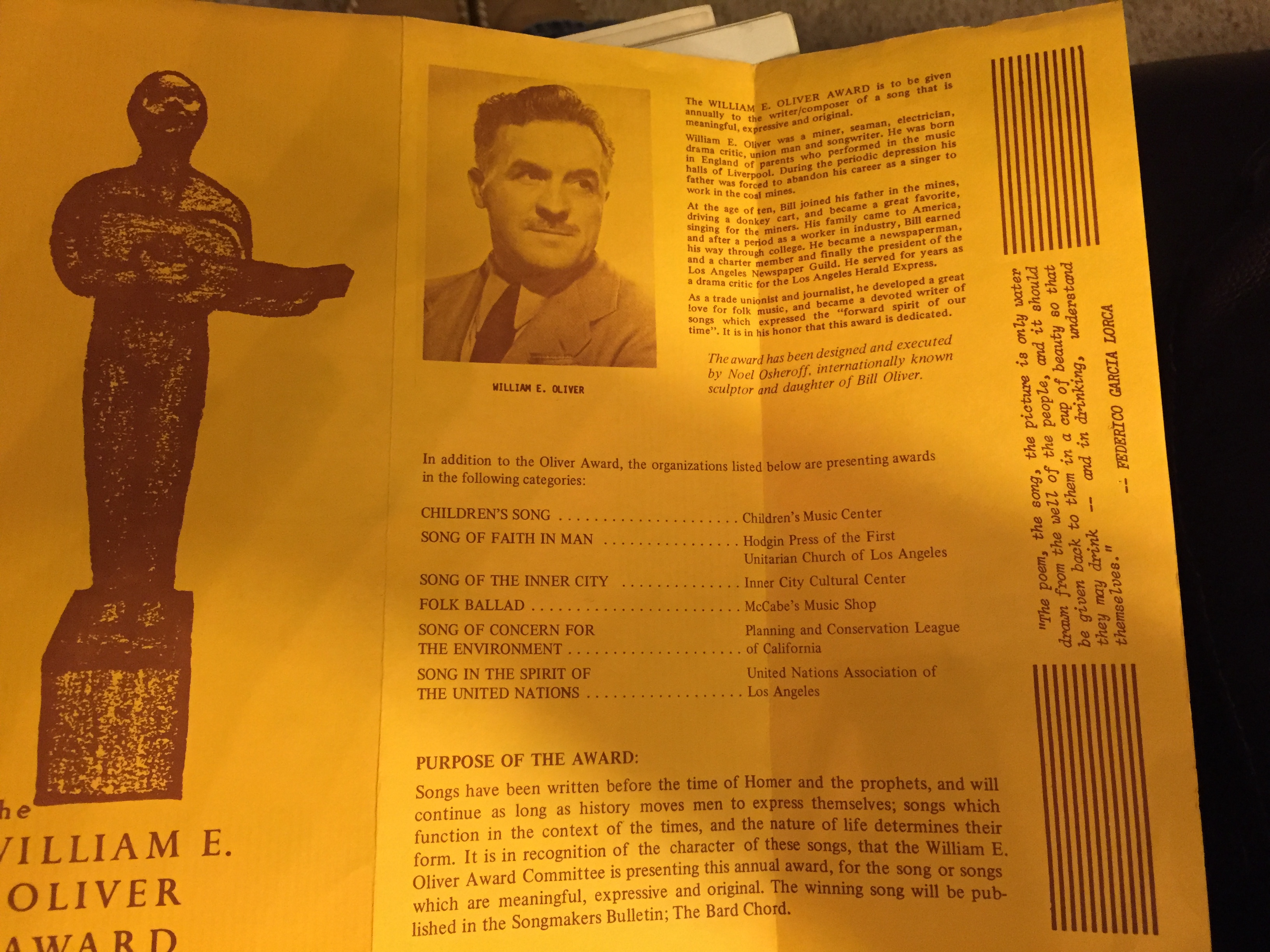
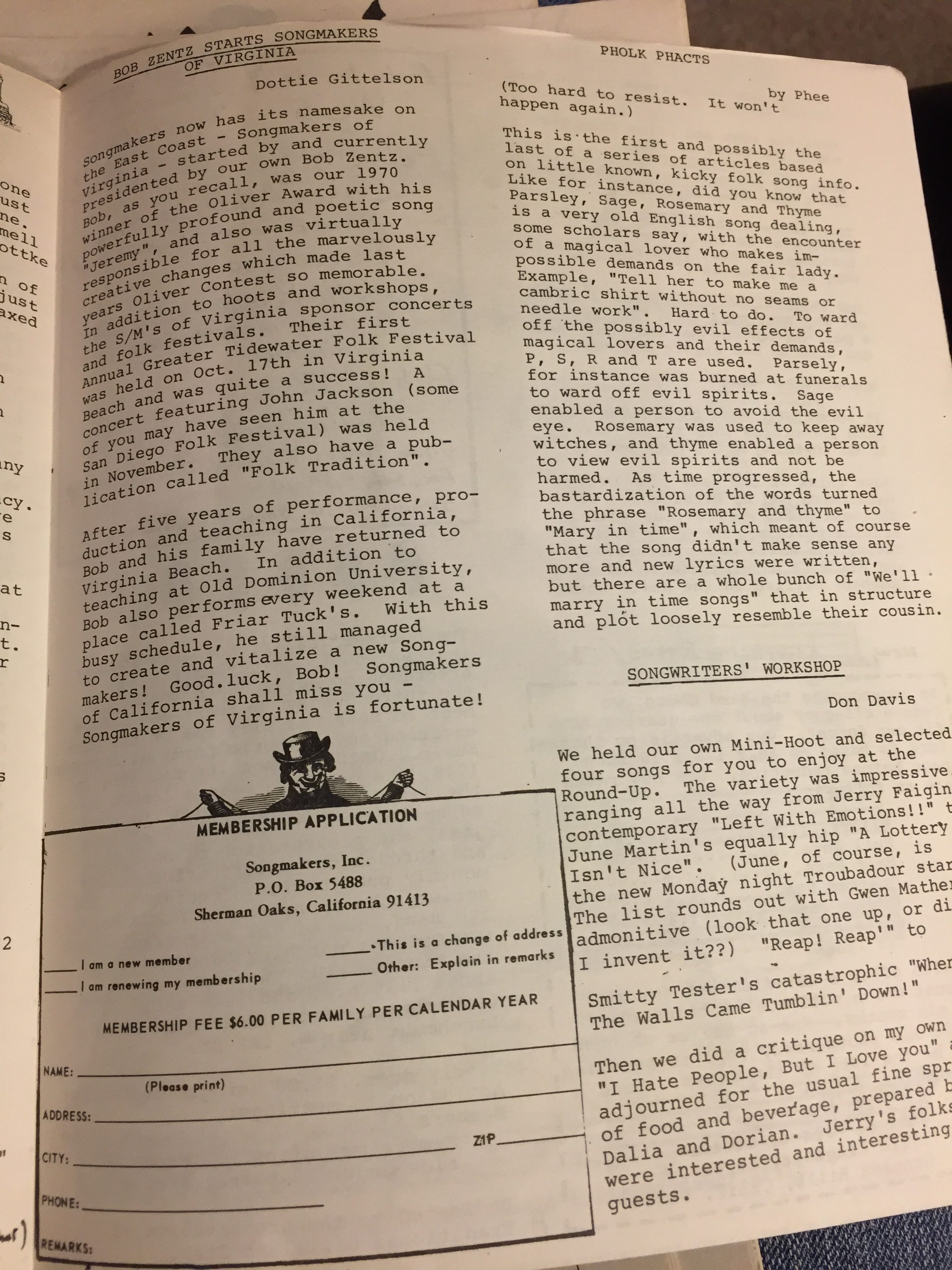
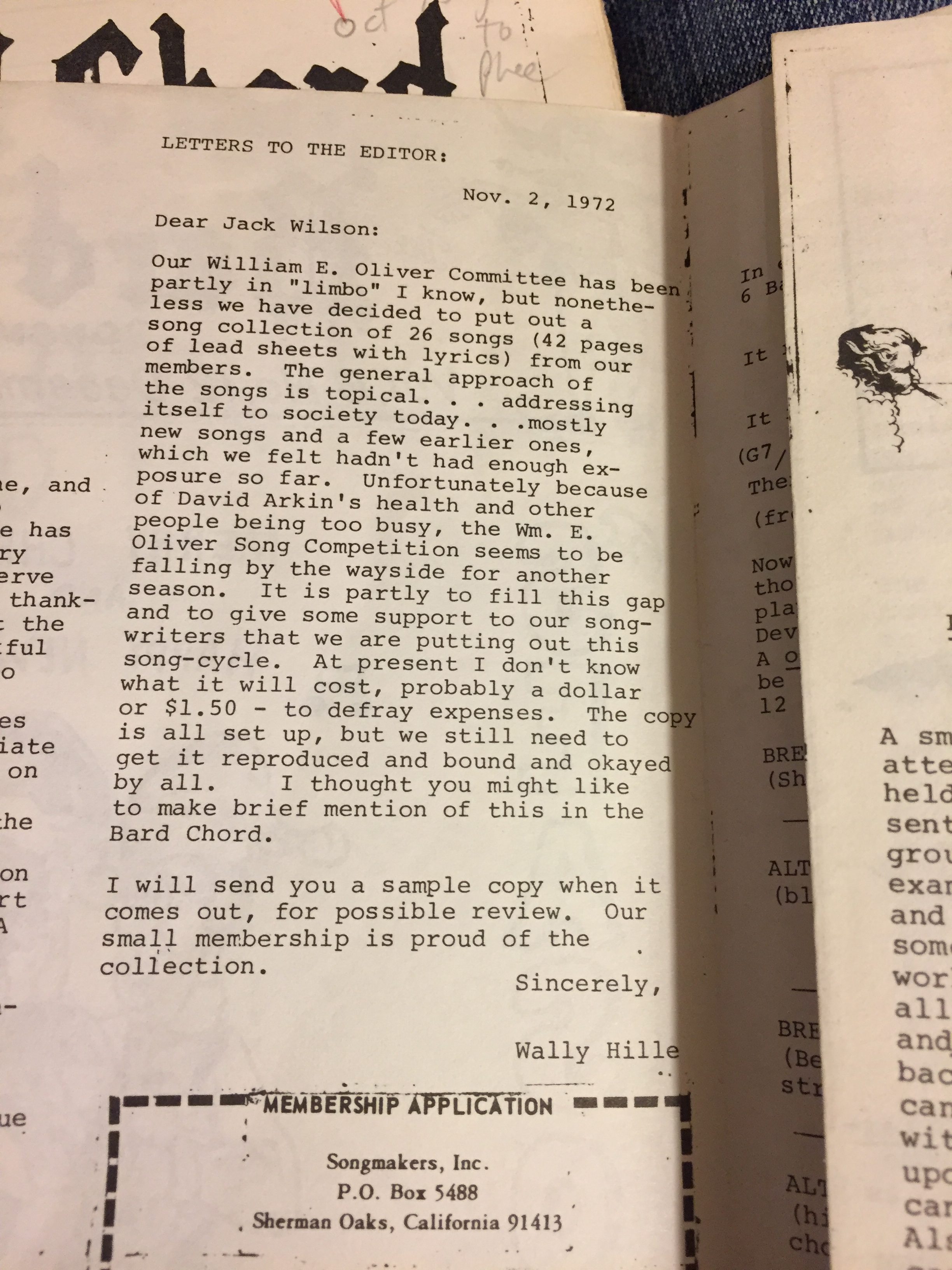
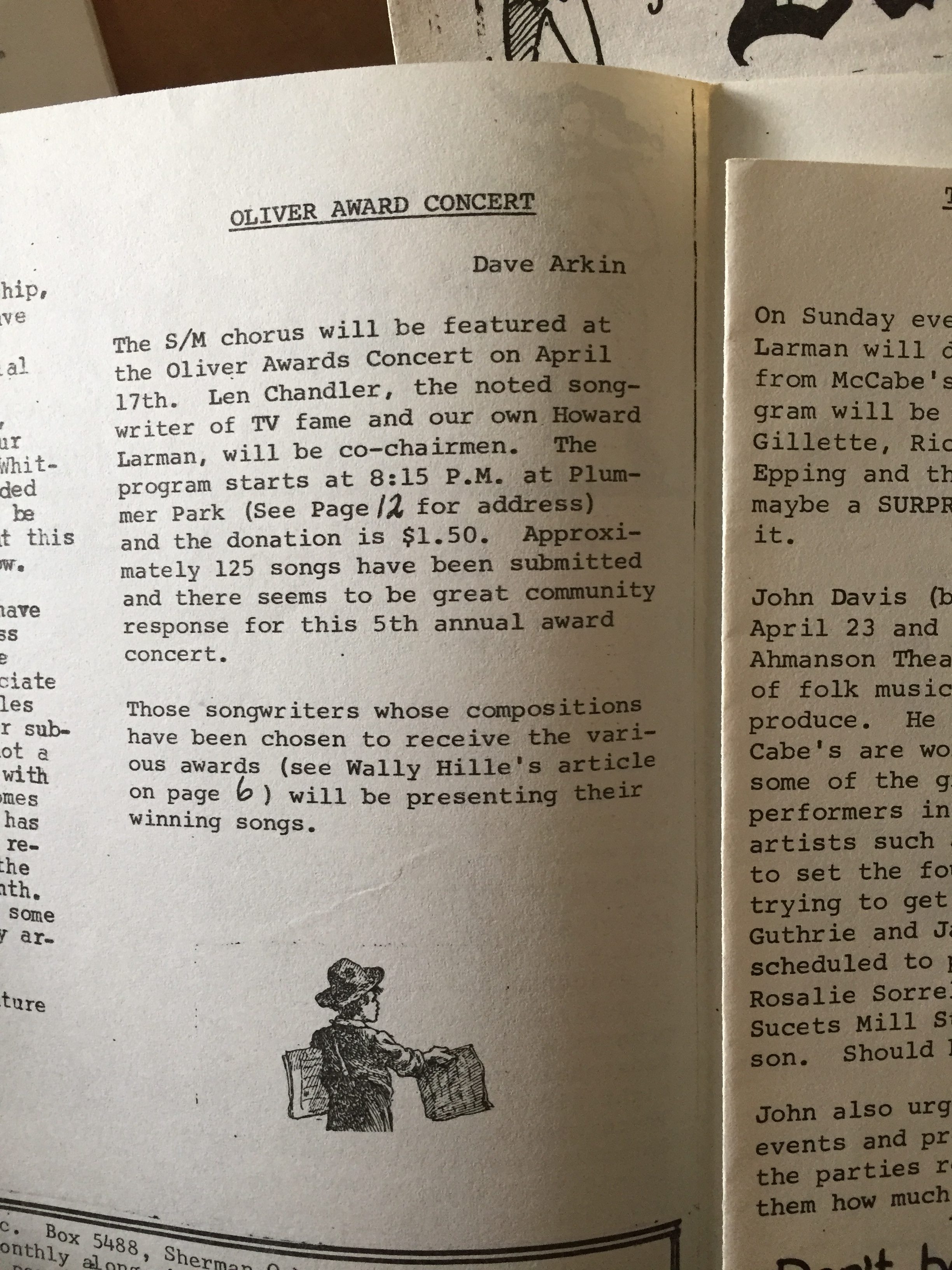
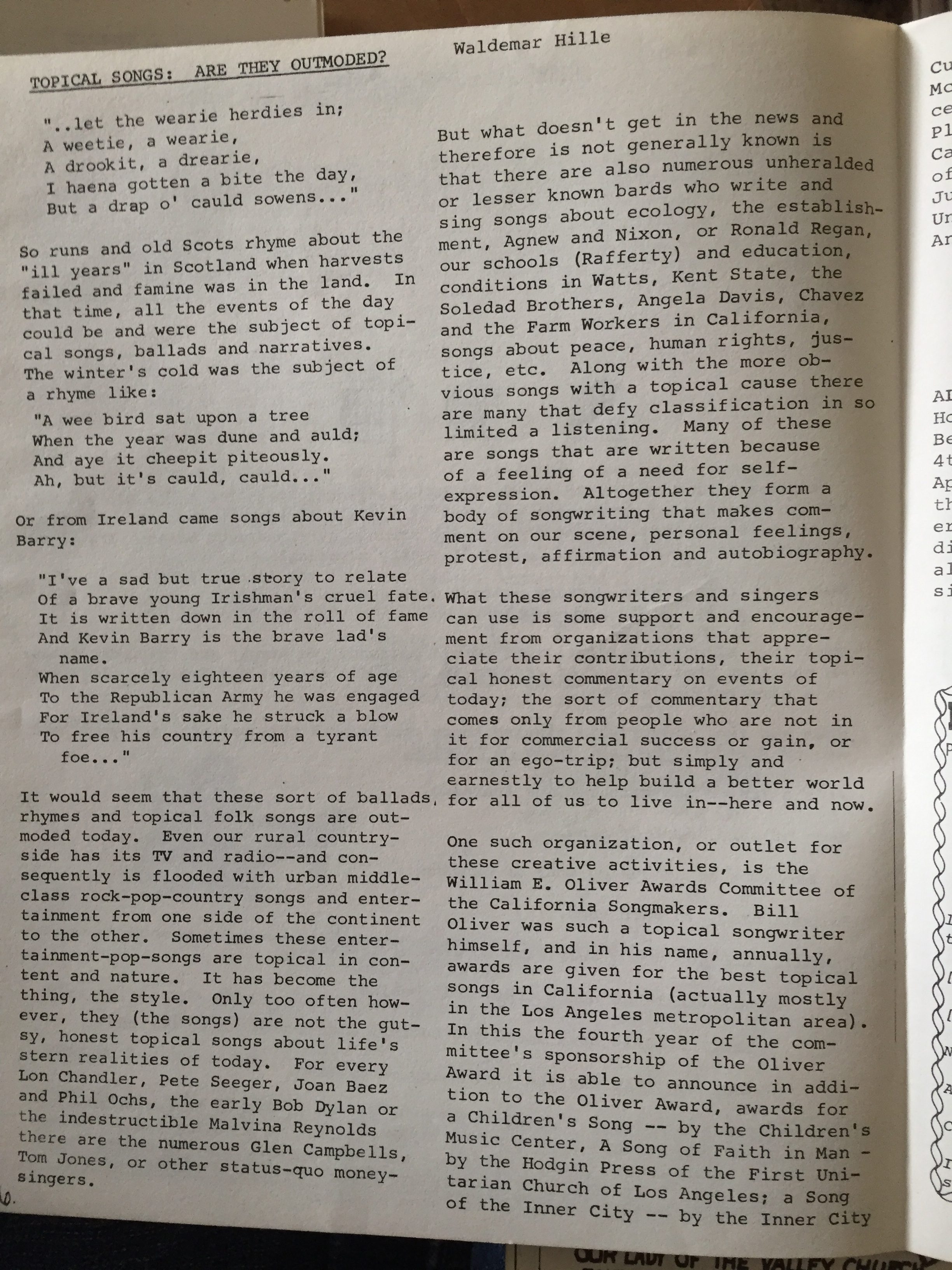
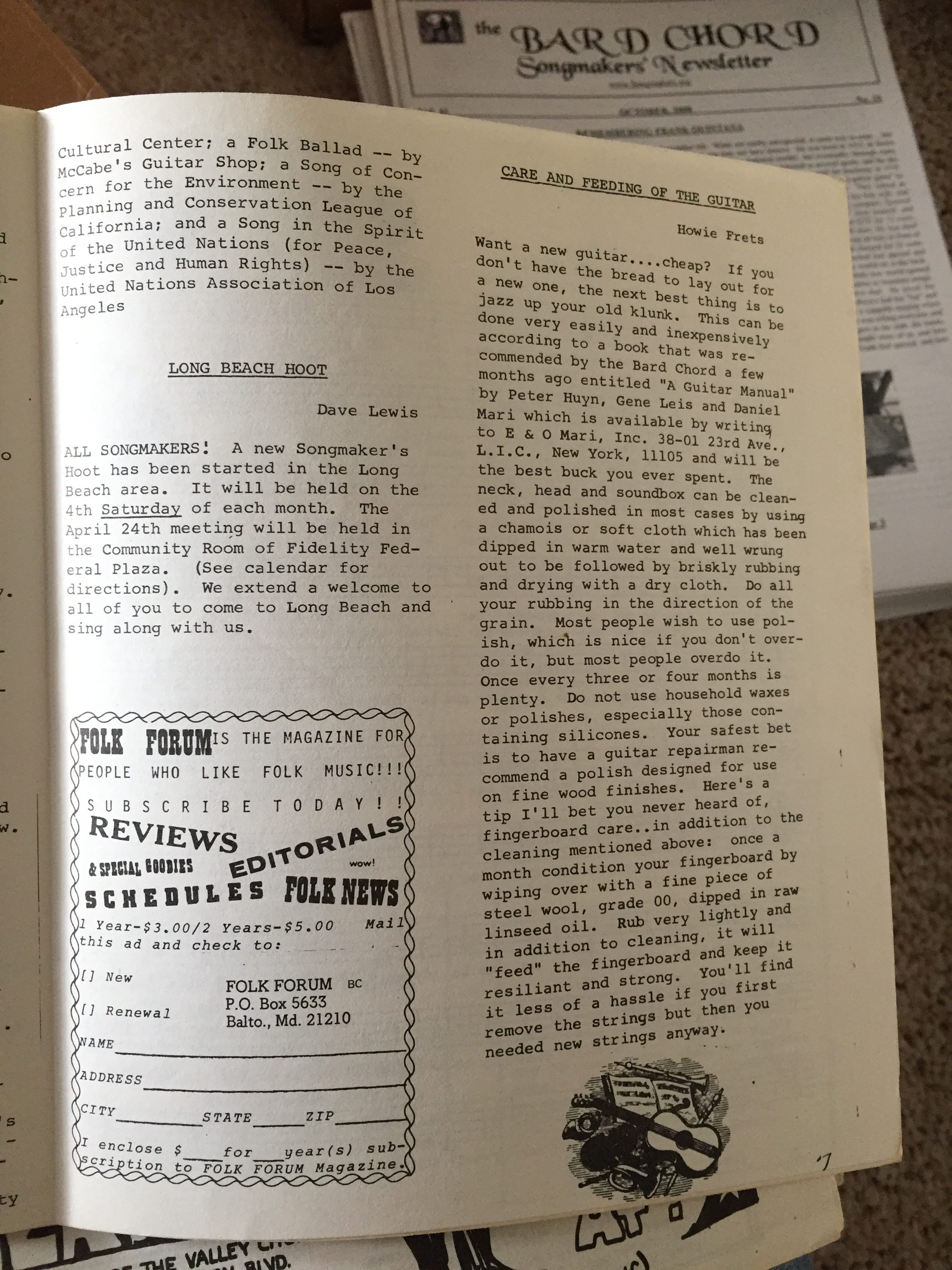
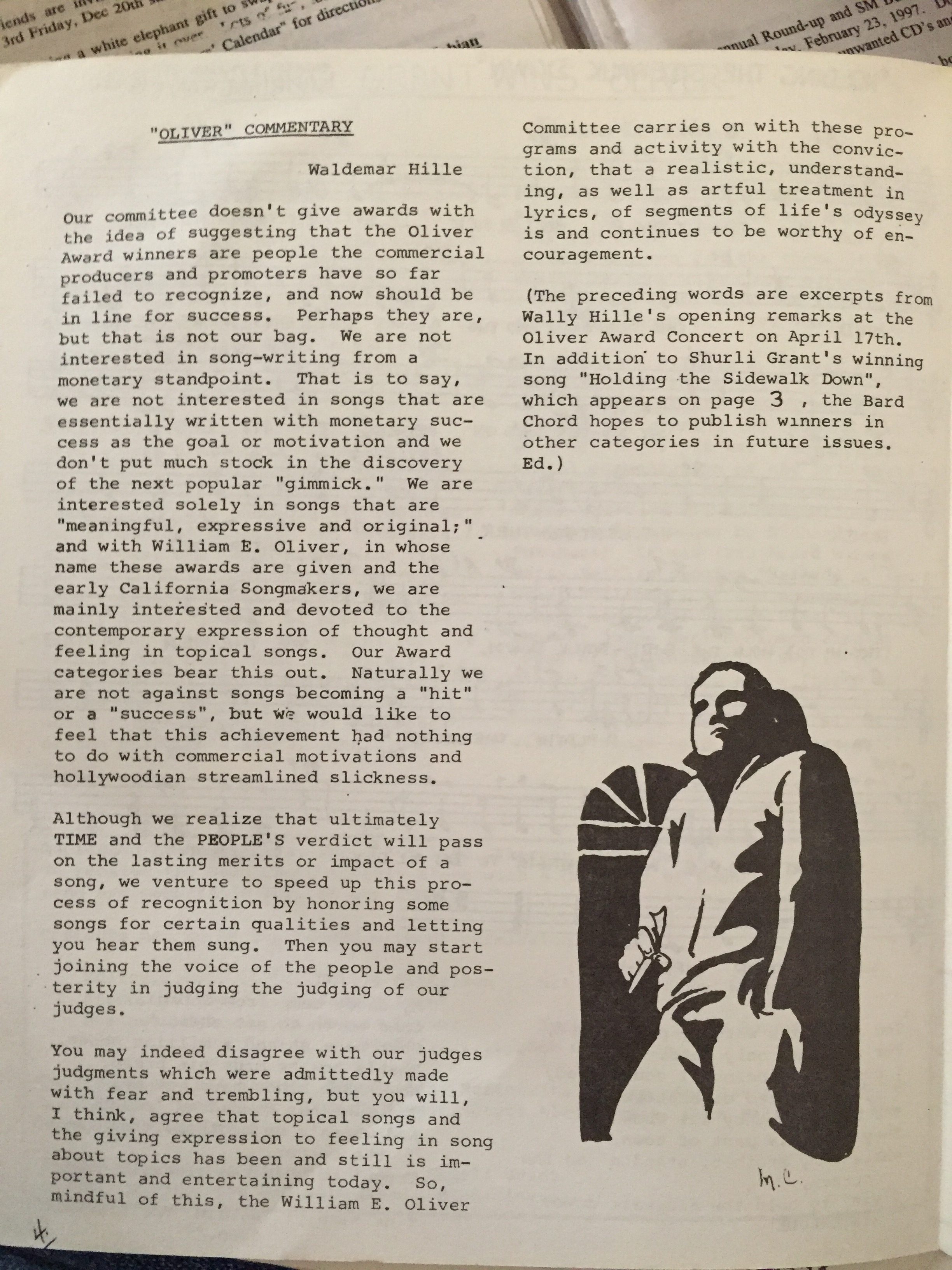
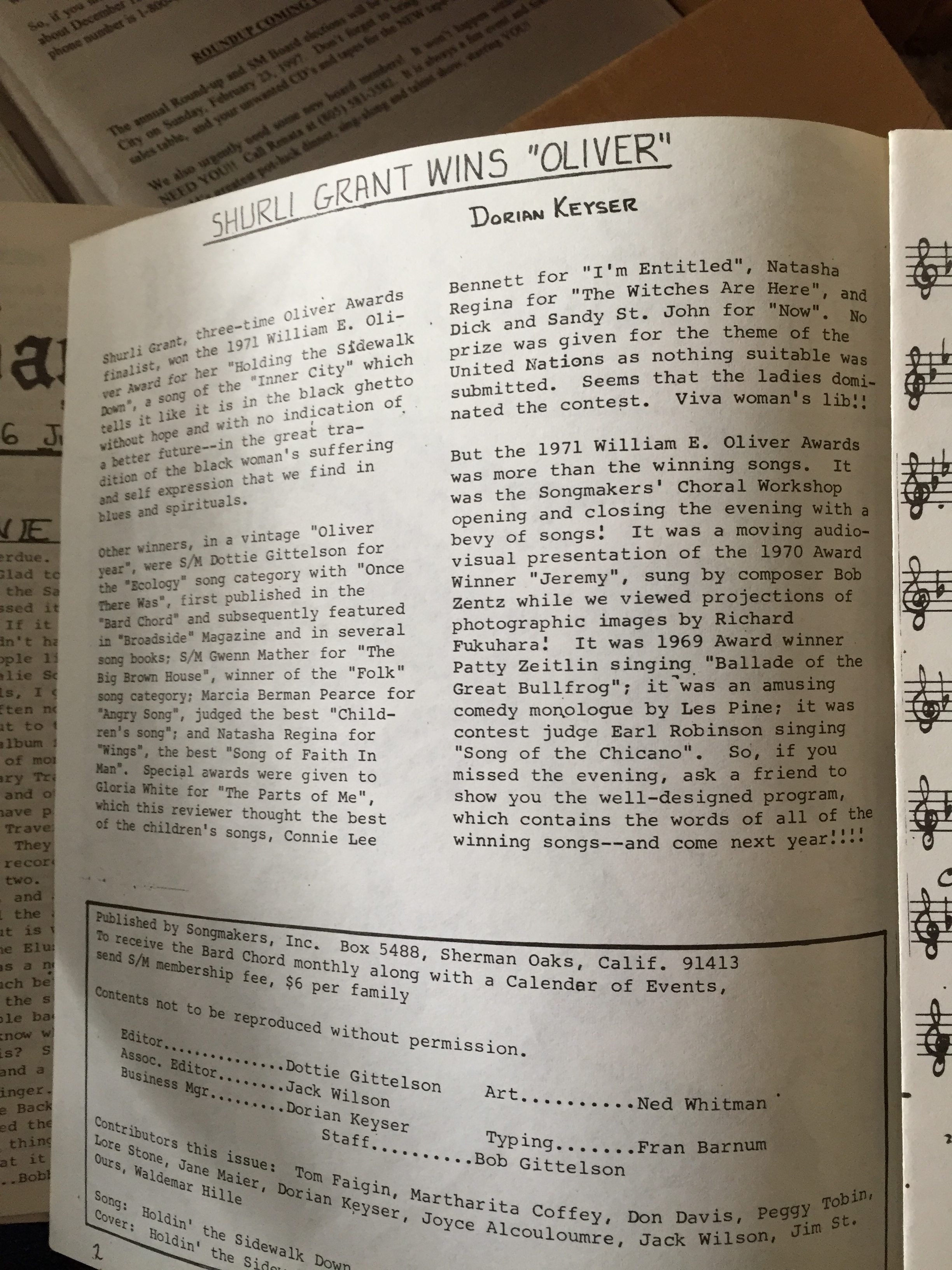
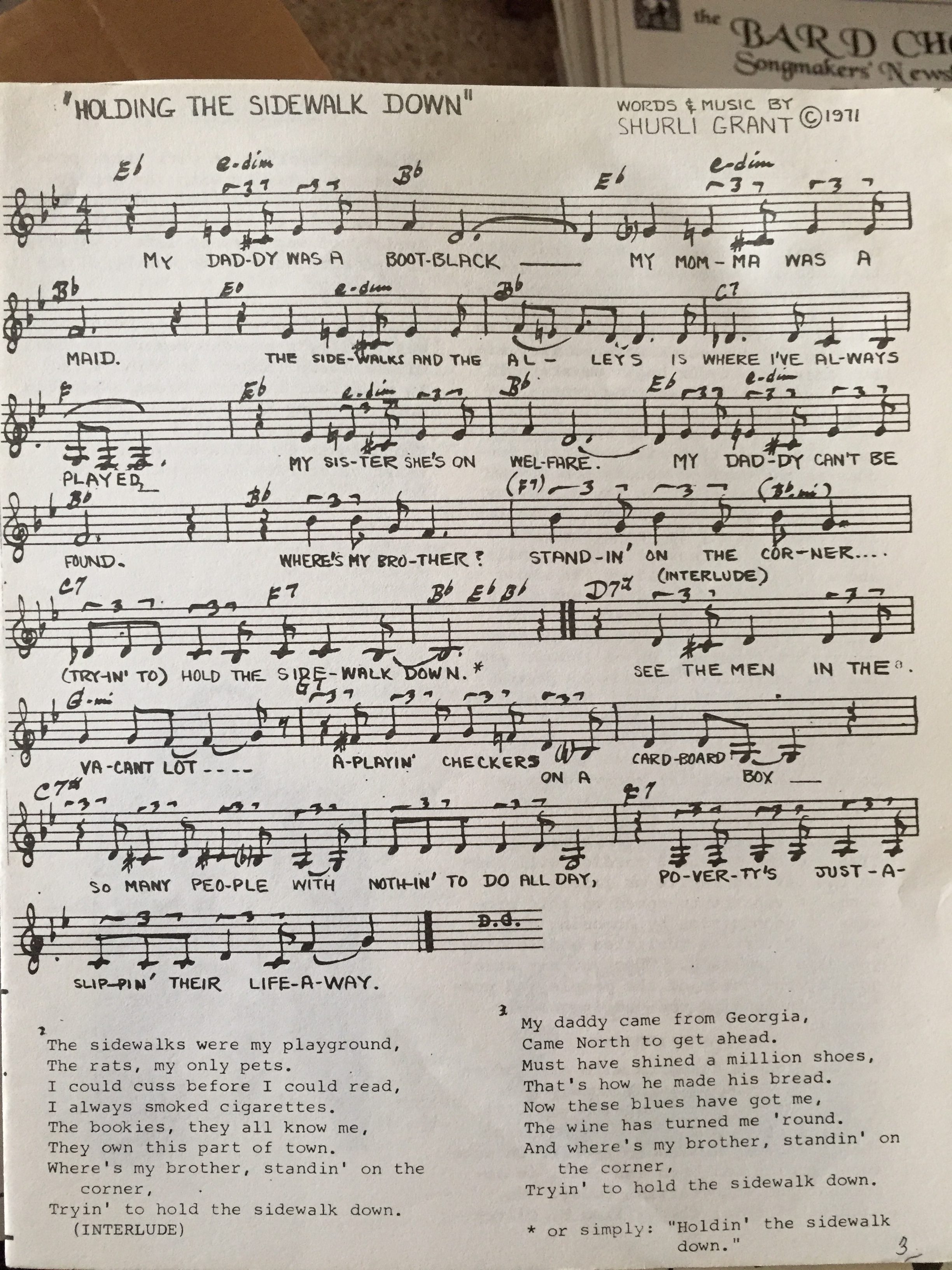
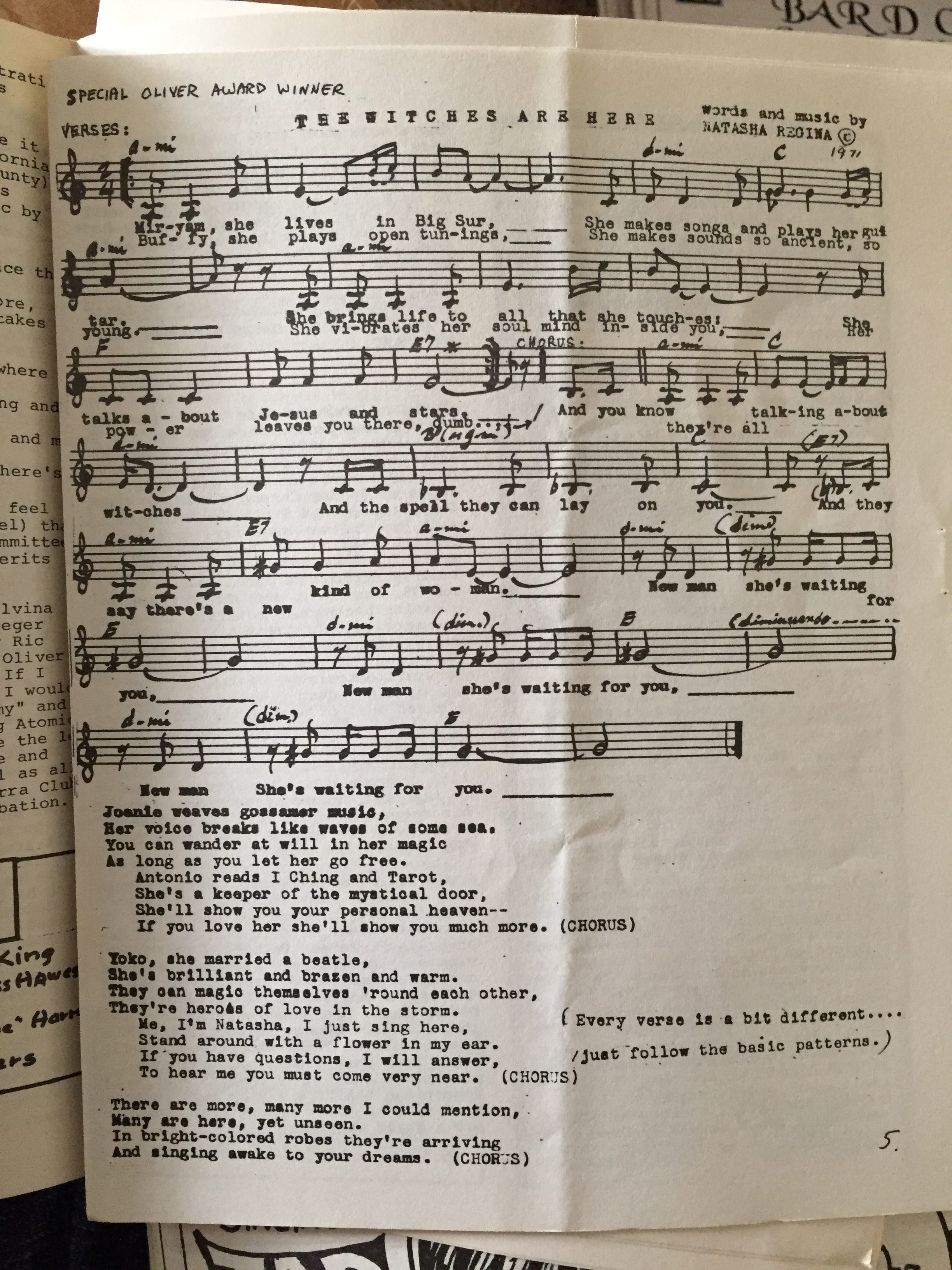
The following information on the history of the Oliver Award was copied and pasted to this page from http://www.bobzentz.com/oliveraward.htm
William E. Oliver Songwriting Award
—————————————————–
 This article is a work in progress – please share your memories with Bob and Jeanne Zentz at info@ramblinconrad.com
This article is a work in progress – please share your memories with Bob and Jeanne Zentz at info@ramblinconrad.com
In the days after The Smothers Brothers Comedy Hour was cancelled in spring 1969, 25-year old Bob Zentz was piecing together a life as a working folk artist in Los Angeles. He responded to a flyer posted at McCabe’s Guitar Shop in Santa Monica about a contest sponsored by the Songmakers of California. The experience would change his life as well as his understanding of the meaning of “the power of song.”
The William E. Oliver Songwriting Award was named for songwriter, screenwriter, drama critic, and all-around song enthusiast Bill Oliver, whose involvement in getting people active and involved in the arts through many media can only be described as indelible. That effect was in the minds of his wide circle of friends, generally centered around the Songmakers of California and the First Unitarian Church of Los Angeles and including Bill’s songwriting collaborators Waldemar (Wally) Hille and David Arkin. In the months following Bill’s passing in December 1964, this group created an award in Bill Oliver’s name to be given to a California “composer of topical folksongs ‘which best express the forward spirit of our times.’” (note 1)
The “Oliver” was awarded by judges from Songmakers and First Unitarian Church’s music committee; the awards committee members’ names listed in the November 1967 issue of Broadside magazine include Davida Franchi, Nancy Westley, Waldemar “Wally” Hille, William “Bill” Wolff, Dorian Keyser, Howard Larmen, David Arkin, Edwin Hughes, and Van Tibbels. (note 2)
The first “Oliver” was presented at a concert in February 1967 to actor-composer Mike Kellin for a group of three songs: “Hartman Turnbow,” “The Testimony is Still Coming In,” and “Preserven El Parque Elysian.” (note 3) Mike had already had an extensive career as a stage and screen actor on both coasts and was appearing on Broadway as Oscar Madison in The Odd Couple in the same year the award was given. (note 4) Mike died of lung cancer in 1983, but his songs live on in his 1967 Verve-Forecast album, And The Testimony’s Still Coming In! (note 5)
In 1968, the second “Oliver” went to Bonnie White for “Blackberries” (note 6), a song later released on her 1971 Bell/Carousel album Suite From The Other End. (note 7) Second-place recognitions were given for two anti-war songs, “Flowers in This Land” by Patty Zeitlin, and “Empty Boots,” by Dottie Gittelson. Honorable mentions went to “composers of songs on the plight of minorities:” E. C. Greenfield (d. 1970) for “Joaquin Murietta;” Jules L. Ramey (d. 2001) for “And I Can’t Wait Another Hundred Years;” and Deborah Parducci (d. 2001), Darrell Terwilliger (d. 1971), James Wellman, and Janet Droege for songs whose names we still seek. (note 8)
The 3rd annual “Oliver” was awarded in 1969 to Patty Zeitlin for “Ballade Of The Great Bullfrog.” (note 9) Newspaper coverage indicated that a concert was planned for April 19 at Plumer Park Auditorium in West Hollywood with performances by “the 10 leading entries.” (note 10)
The fourth “Oliver” was awarded to Bob Zentz in April 1970 for “Jeremy Begins to Wonder,” a nuclear apocalypse song whose title later was known simply as “Jeremy.” (note 11) The song appeared on Bob’s second Folk-Legacy release, Beaucatcher Farewell, performed on the 12-string guitar that Bob built in 1976 as part of Nick Apollonio’s Maine Guitar-Building School, “southern campus” at Ramblin’ Conrad’s Guitar Shop and Folklore Center in Norfolk VA. Bob named his 12-string “Jeremy” after the song.
It was the practice for the “Oliver” recipient to join the judges committee for the following year’s award. Meetings were held in the apartment of Bob and Rosie Zentz, with baby Bryan sleeping in the next room. Committee members included David Arkin, Wally Hille, Earl Robinson, Vern Partlow, Howard Larman, Bill Wolff, and others. At the end of their work and deliberations, the contest was divided into categories with a number of winners recognized on April 17, 1971 at the 5th annual Award Concerts, held again at Plummer Park Auditorium. (note 12)
A final published list of judges’ names — Jerry Atinsky, David Arkin, Waldemar Hille, Vern Partlow, and William Wolff – appeared in the tenth anniversary issue of Broadside in early 1972 in a congratulatory greeting to the magazine’s editors that featured “a quickie parody on ‘Let the Sun Shine Forever’ by Oshanin-Ostrovski, a Russian children’s song.” Wally Hille restated the committee’s mission:
For Songs of Social Significance
For songs like a sword and a flame, Sing On! (note 13)
Sadly, the 1971 ceremony was the last. A hint in the March-April 1972 issue of Broadside that there would be no award that year was followed by a more formal announcement by Hille at the end of the year that the “Awards may again have to fall by the wayside this season due to David Arkin’s health and other members of the Committee being too busy.” But he promised to “fill this gap & give some support to California songwriters” with “a song collection of 26 songs” that “should be out soon.” (note 14) True to his word, Song-Cycle 1973, edited by Hille and published by the Oliver Committee and the Music Committee of First Unitarian, became available in early 1973. It appears to have been the final output of the William E. Oliver Committee of the Songmakers of California. (note 15)
But the last reminders of the award are still with us, in the recordings of Mike Kellin, Bonnie White Mitchell, Patty Zeitlin, D’Vora (Dottie) Gittelson, Bob Zentz, and others whose names we still seek to add to the list of participants and recipients, and especially in the song collection Song-Cycle 1973, copies of which are still in circulation.
The spirit of Bill Oliver also lives on in every person touched by the songs, courses, workshops, and myriad other works of these participants, as well as the members of First Unitarian Church and many other congregations both sacred and secular who still sing the songs Bill wrote that “best express the forward spirit of our times.”
So, too, do the songs that populated publications including Bard Chord and Broadside in the 1960s and 1970s, encouraging a singing tradition that united and activated people during an era awash in mass-culture music largely produced to be done to, rather than by, individuals. Bill encouraged people to sing, and so did the “children” who were touched by his legacy.
And there is a physical manifestation of the awards in the form of the “Oliver” statue of a folksinger awarded to recipients and created by Bill’s daughter Noel Oliver Osheroff, then living in Venice CA. The inscription on the plaque that accompanied the award comes from Federico García Lorca, poet of the “Generation of ‘27” executed at the beginning of the Spanish Civil War:
The poem, the song, the picture
is only water drawn
from the well of the people,
and should be given back to them
in a cup of beauty
so that they may drink,
and in drinking
understand themselves
This incomplete narrative is to be continued … if you know other parts of the story, we humbly encourage you to share them at info@ramblinconrad.com and encourage expression of “the forward spirit” of the present day, as the Oliver Committee and Bill Oliver might have wished.
Fair winds and following songs, Bob and Jeanne
Partial list of songs written by Oliver Award participants and published in Broadside magazine
Notes:
1. “Oliver Award Presented,” Los Angeles Times, February 19, 1967, p. WS6.
2. Broadside, issue #86, November 1967, p. 8.
3. “Oliver Award Presented,” Los Angeles Times, February 19, 1967, p. WS6.
4. Broadside, issue #81, June 1967, p. 11.
5. https://en.wikipedia.org/wiki/Mike_Kellin
6. Broadside, issue #92, June 1968, p. 6.
7. YouTube and many vinyl LP sites are good sources for this album.
8. Broadside, issue #92, June 1968, p. 6.
9. Broadside, issue #118, March-April 1972, p. 6-7.
10. “Song Contest Set by Oliver Awards,” Los Angeles Times, January 13, 1969, p. G19.
11. Broadside, issue #112, March-April 1971, p. 6.
12. Ibid.
13. Broadside, issue #117, January-February 1972, p. 8.
14. Broadside, issue #120, November-December 1972, p. 4.
15. Broadside, issue #122, First Quarter 1973, p. 7.
